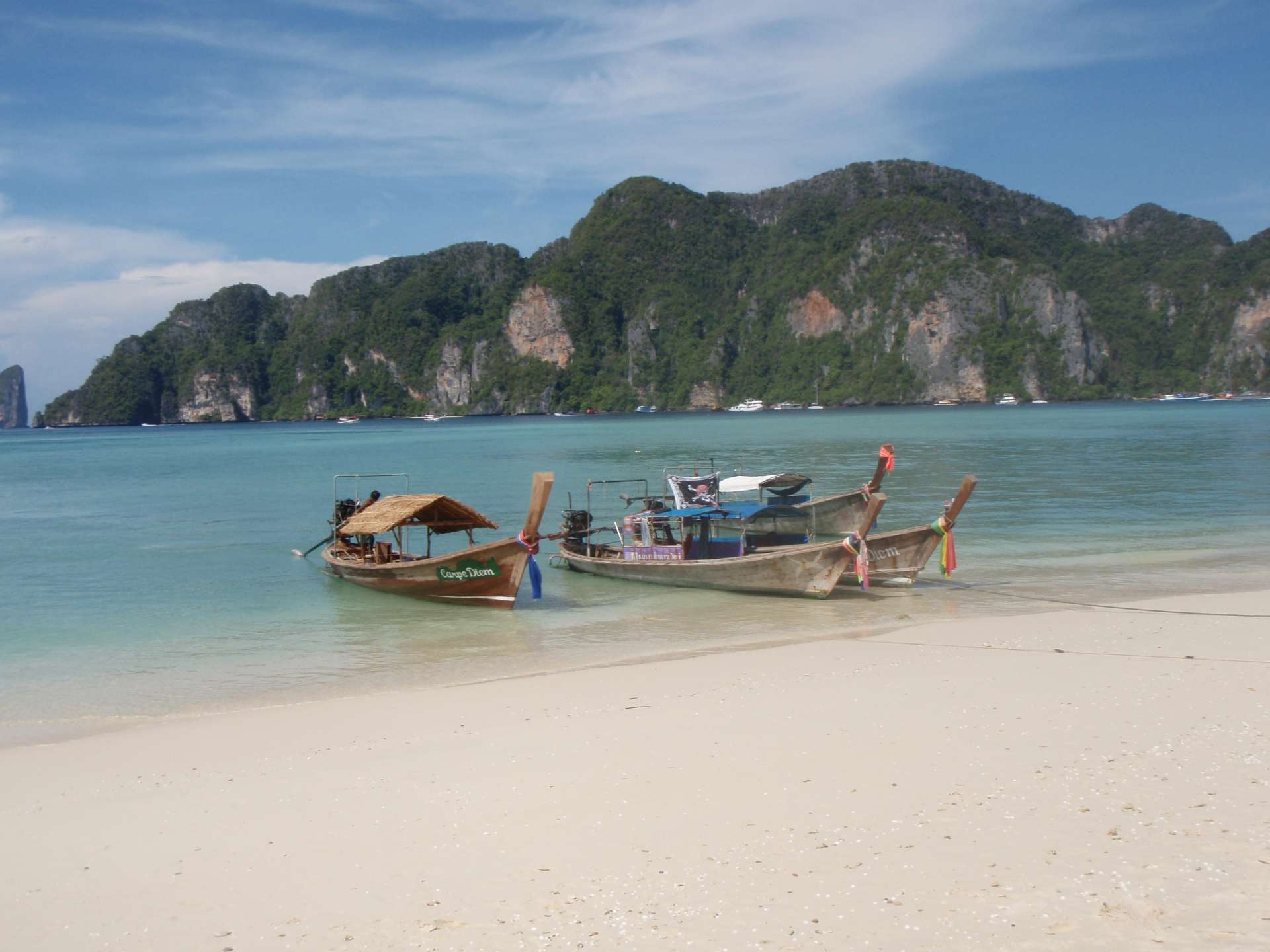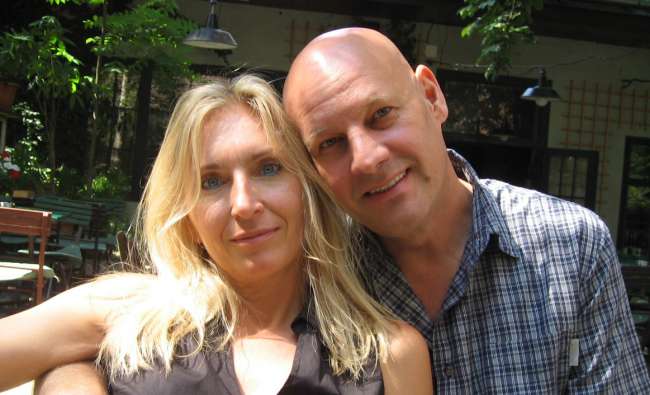North Island New Zealand: Volcanoes, Geysers, and Sand Dunes
प्रकाशित: 21.11.2017
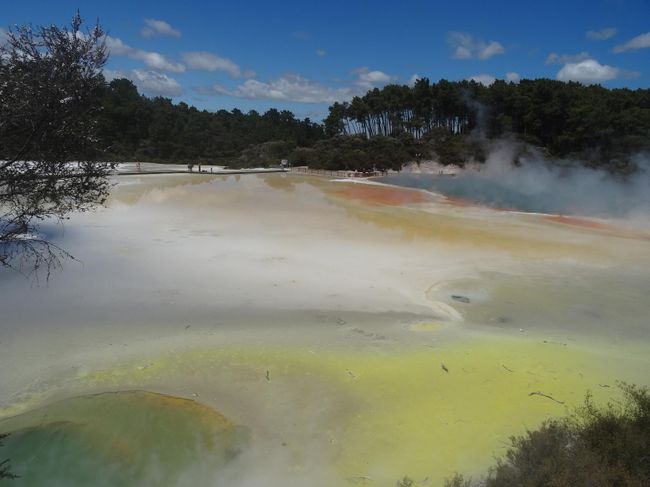
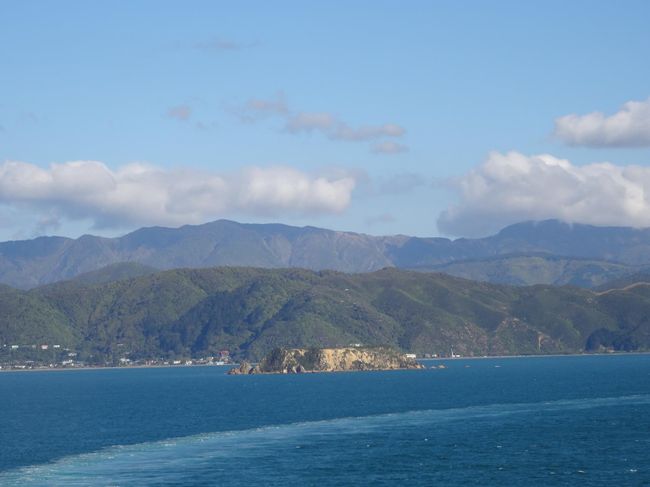
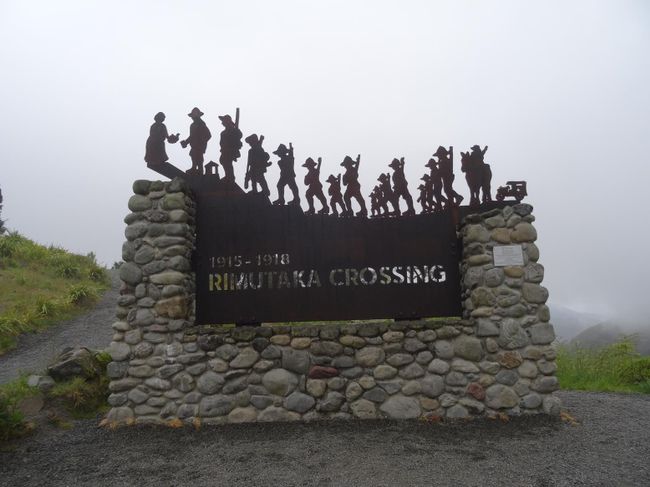
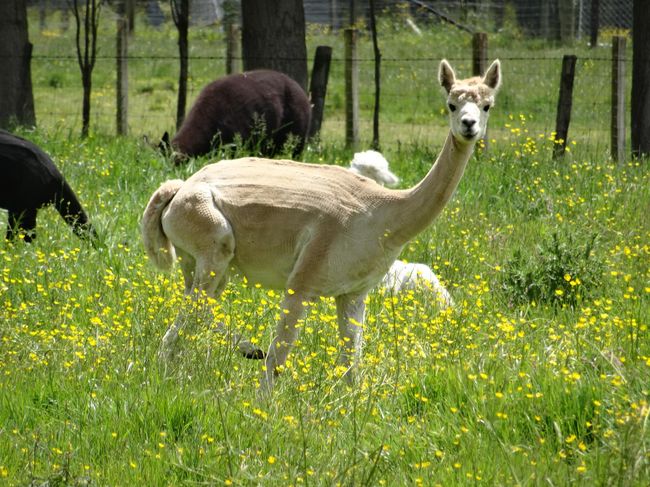
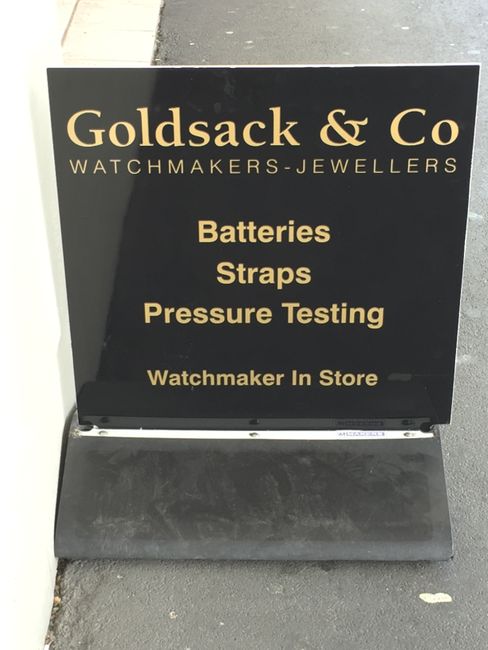
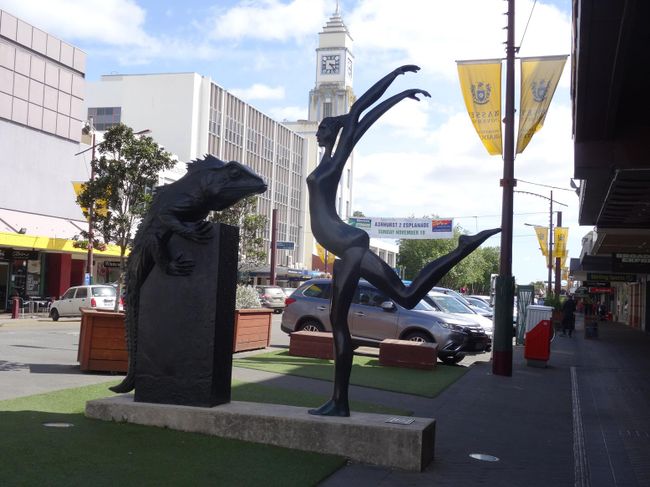
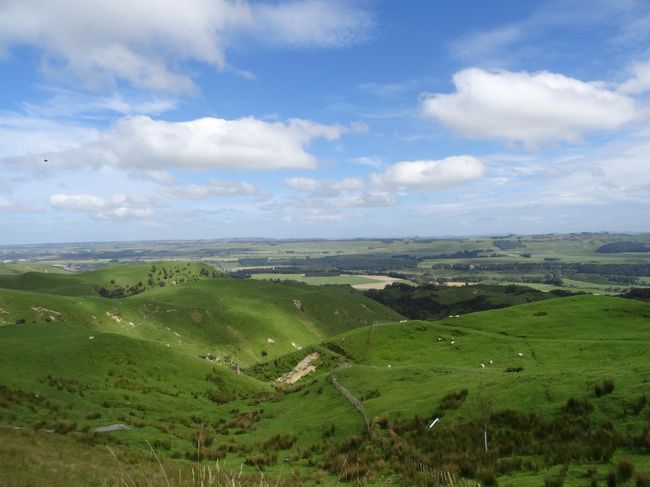
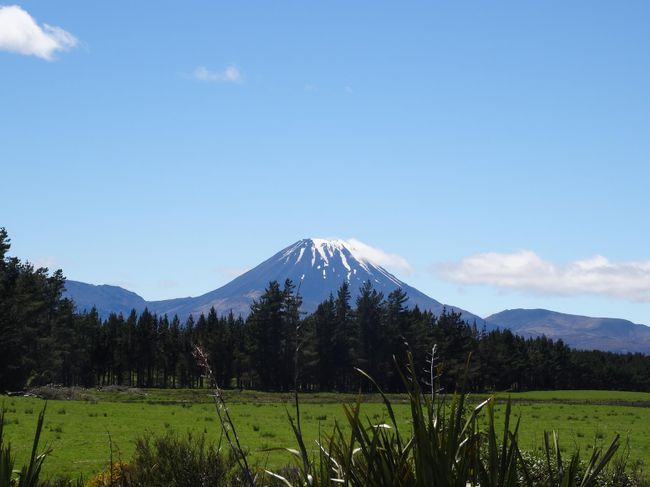
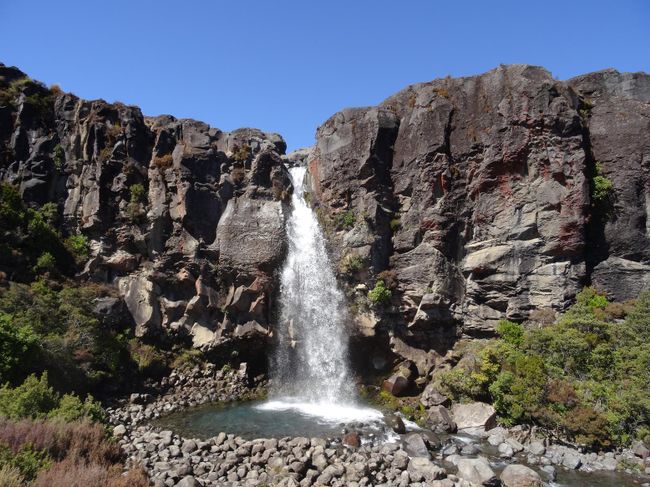

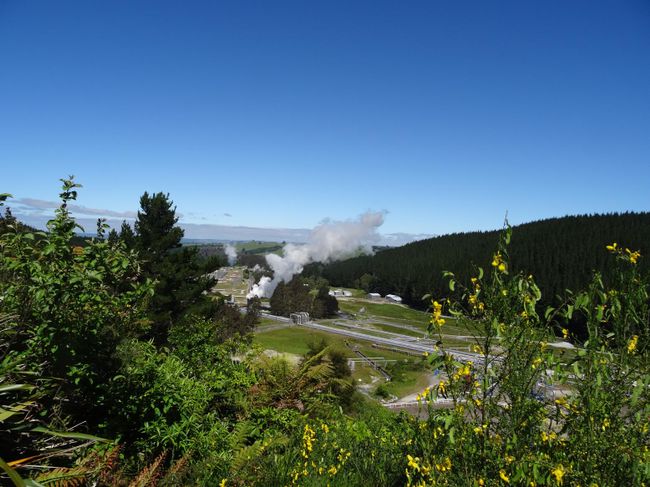
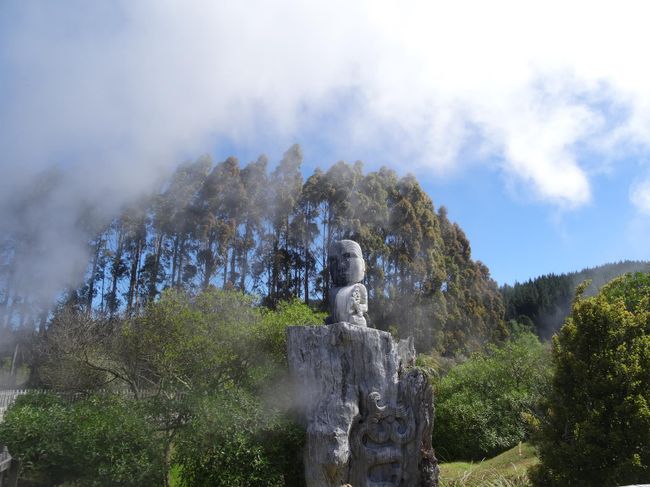
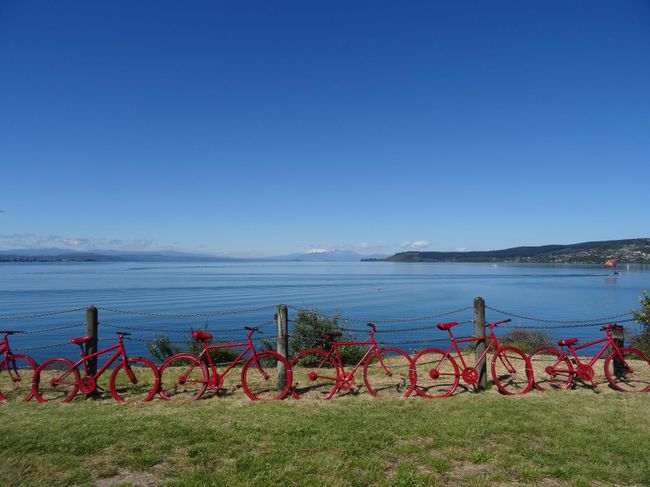
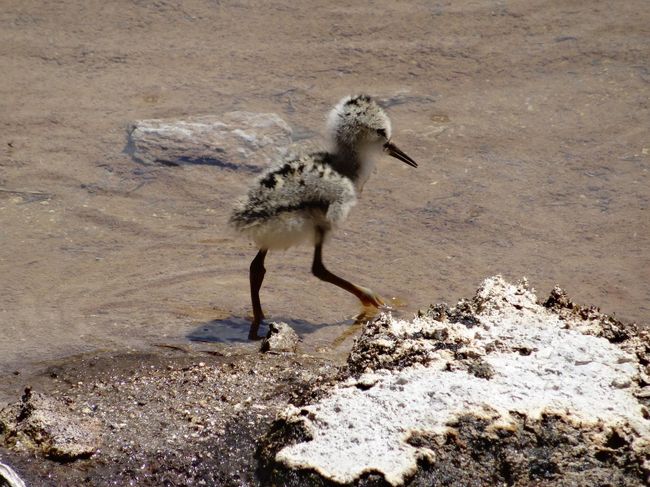
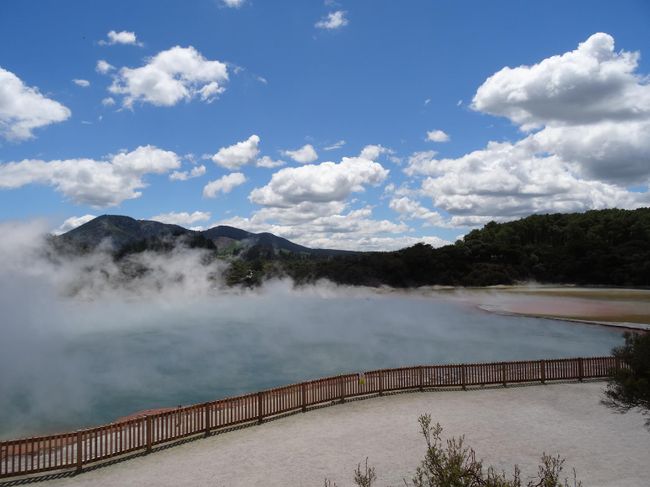
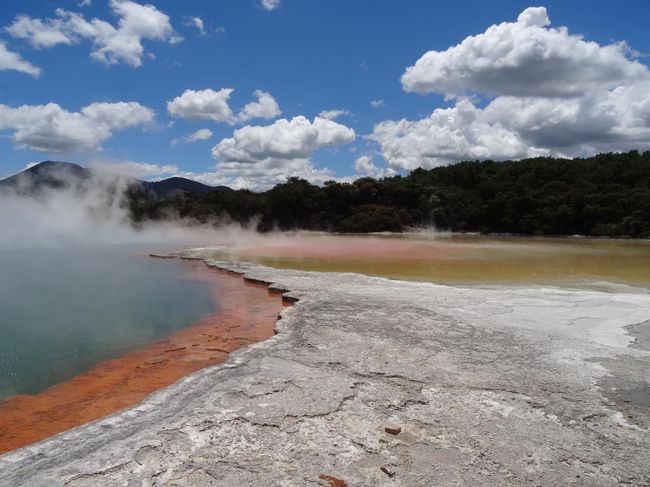
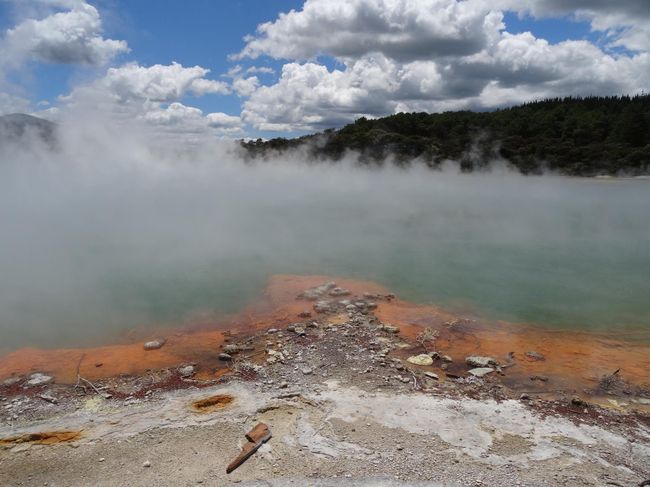
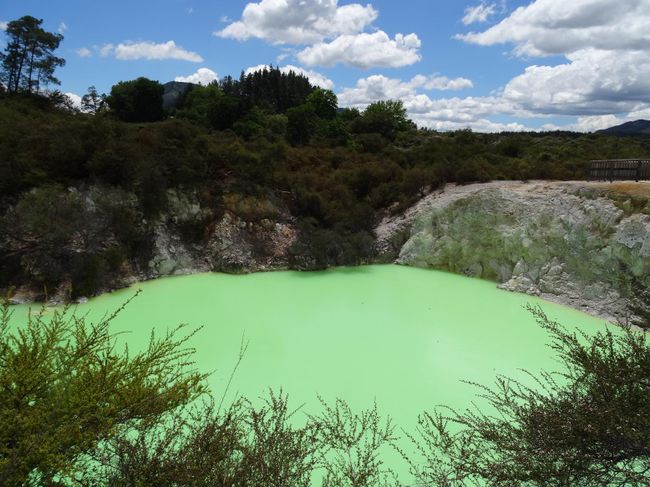
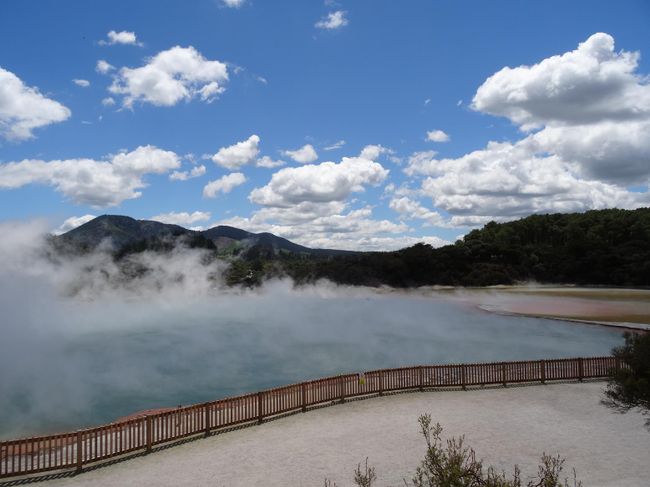
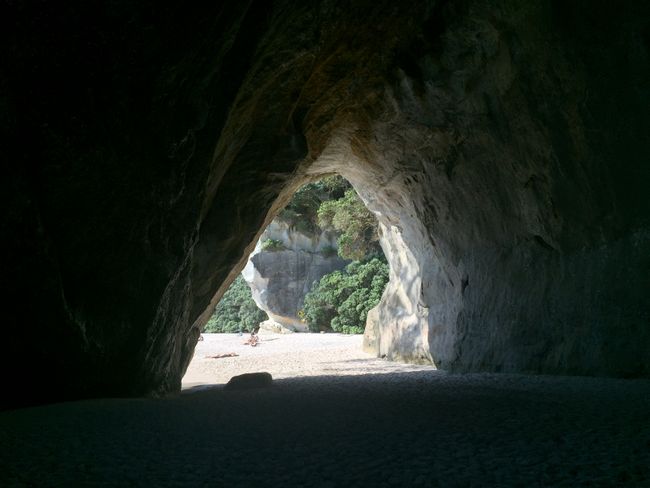
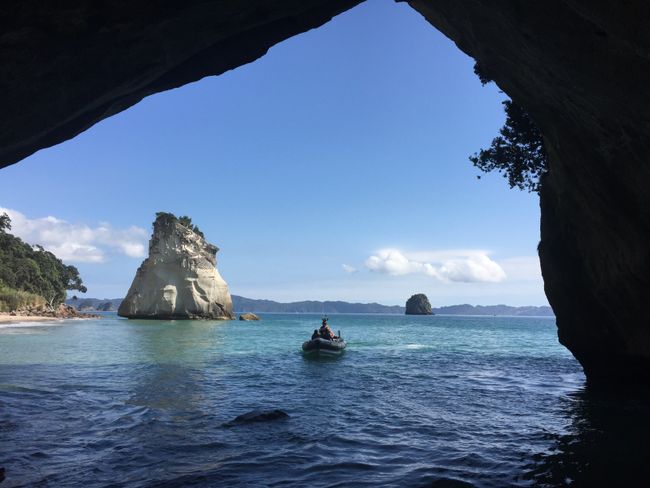
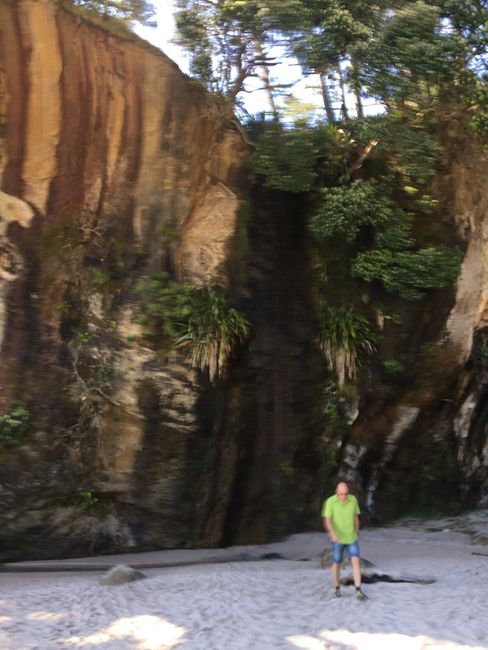
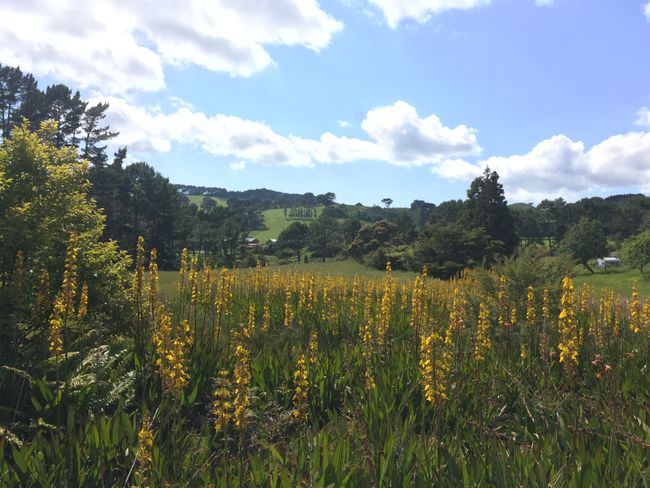
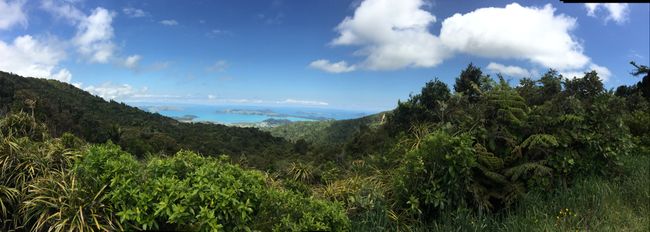

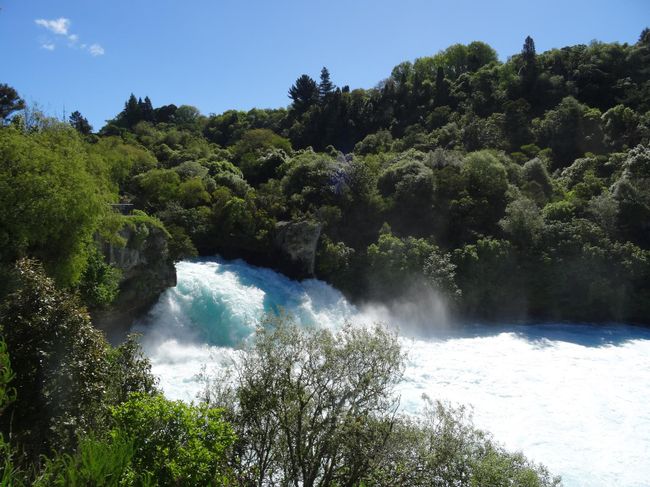
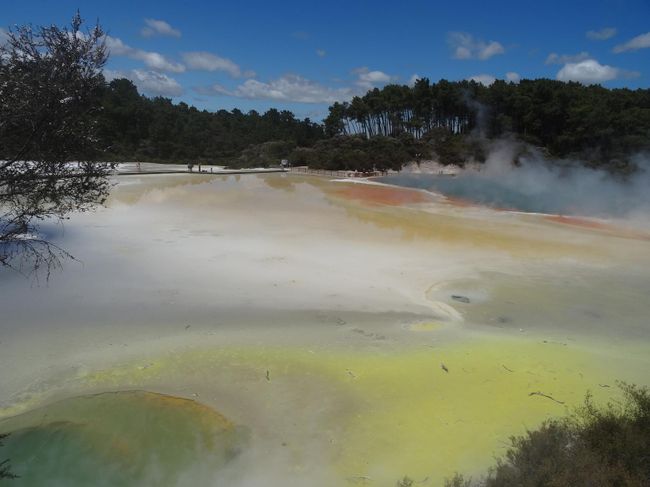
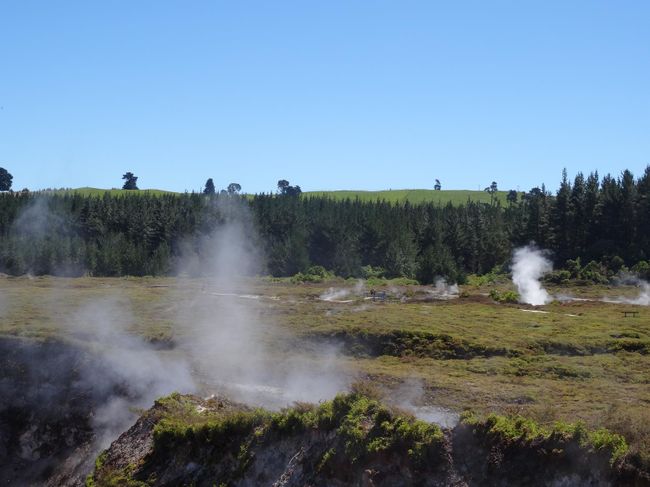
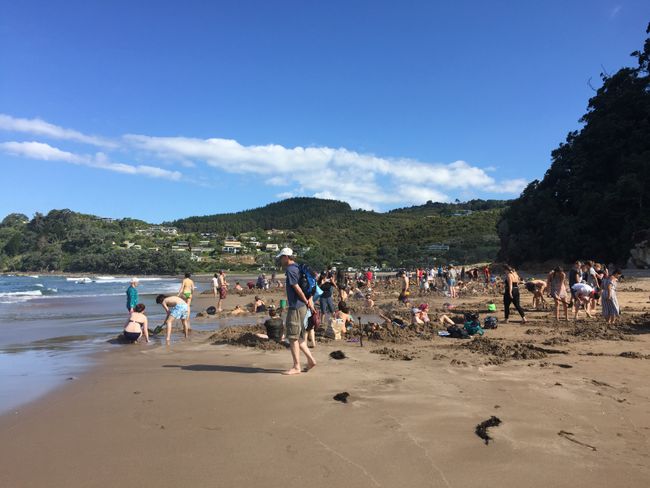
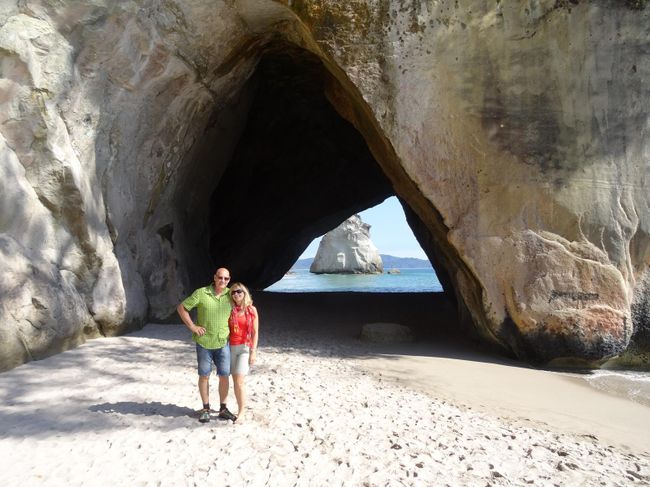

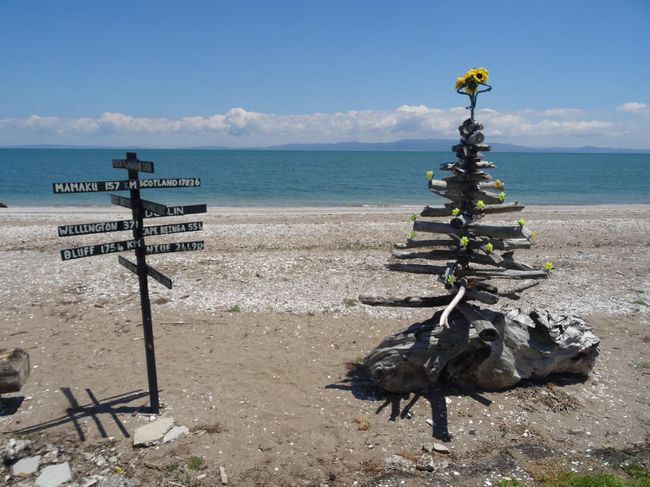
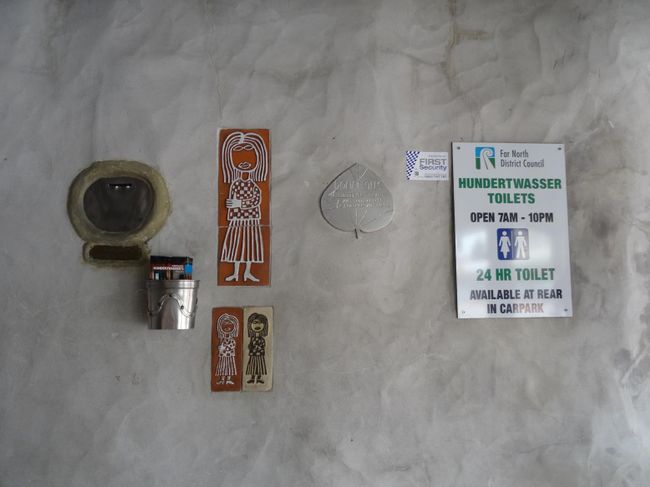
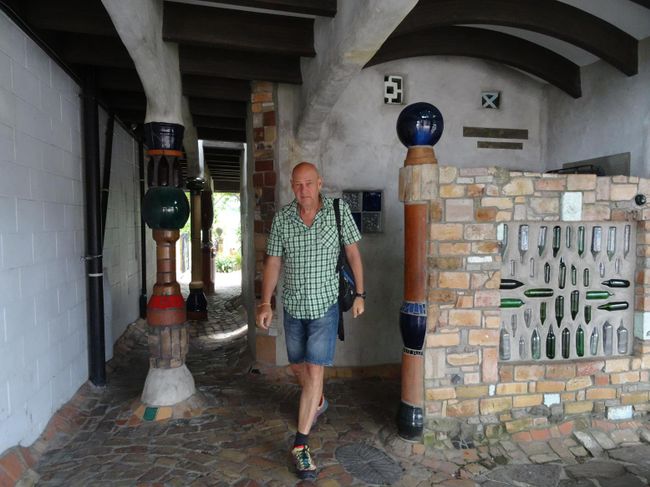
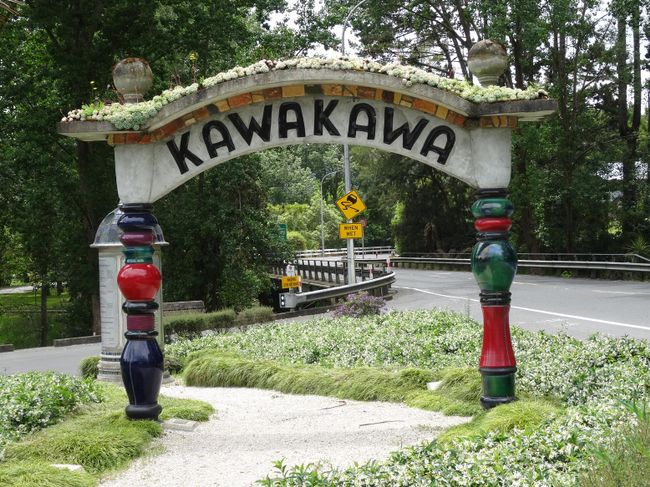
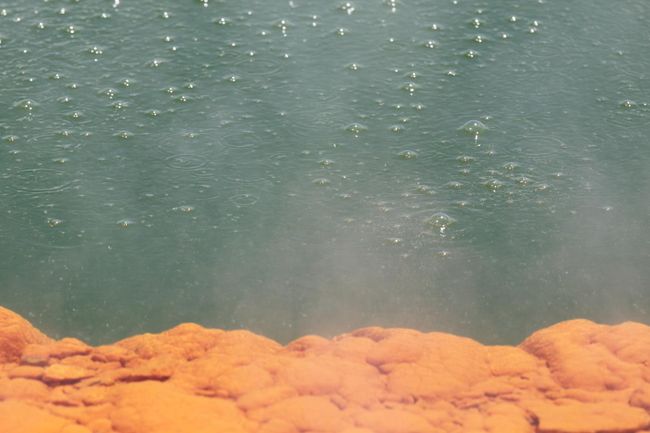
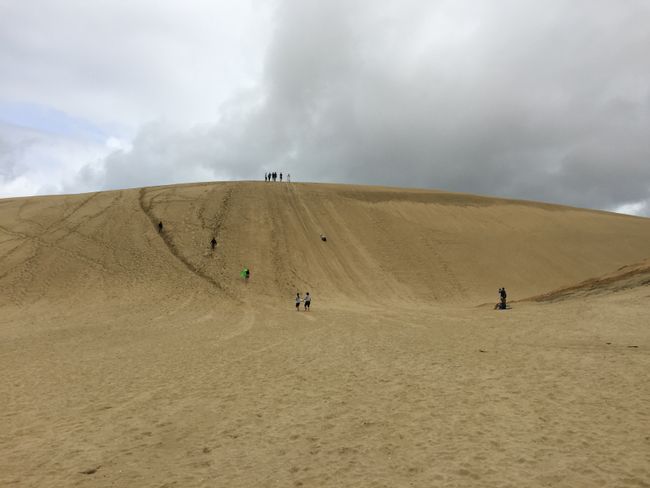
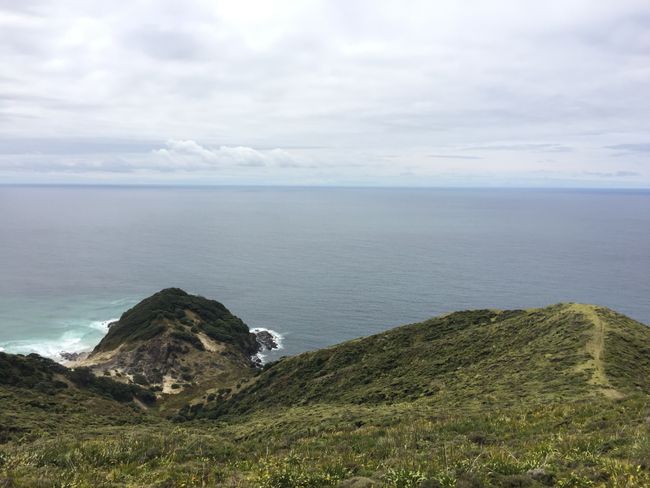
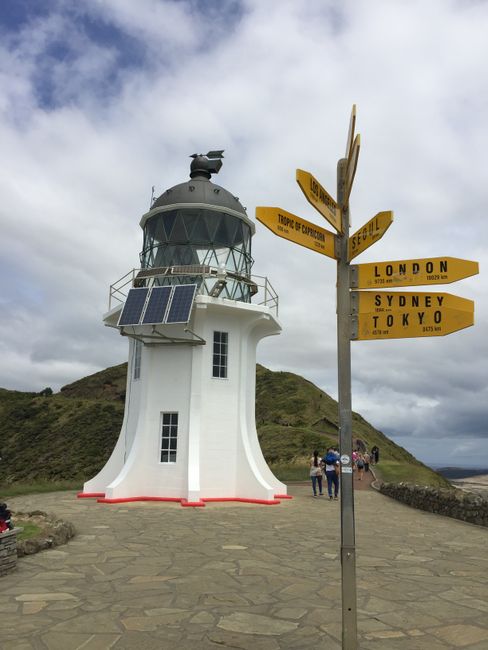
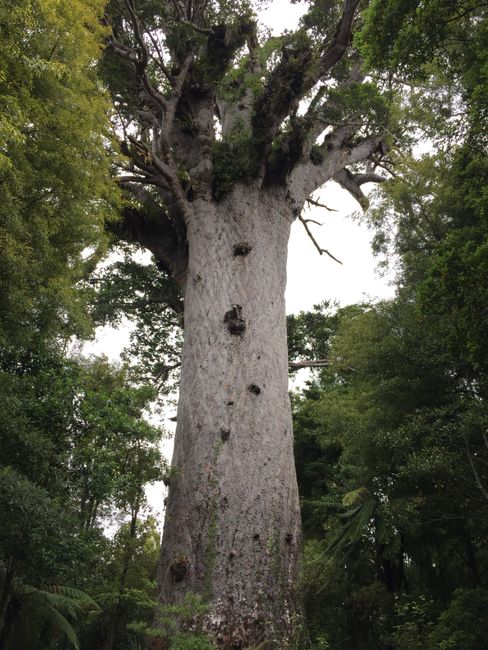
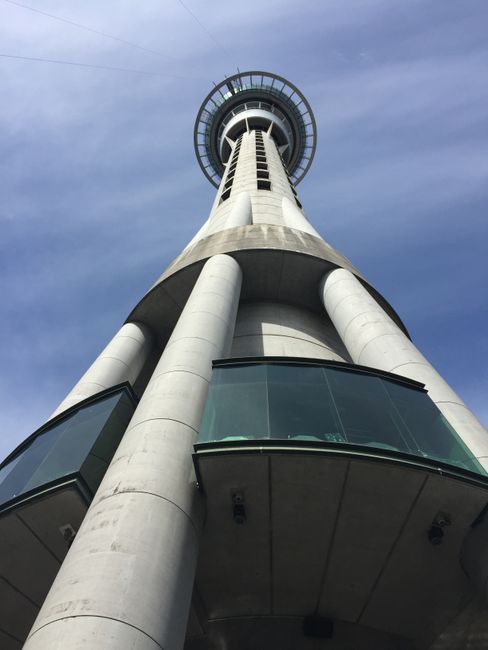
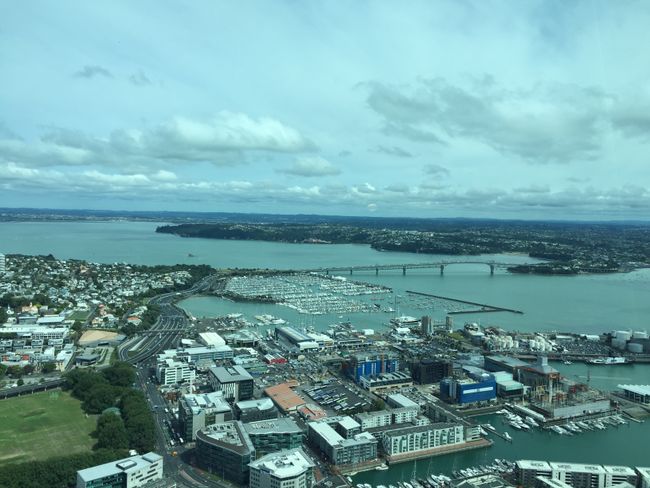
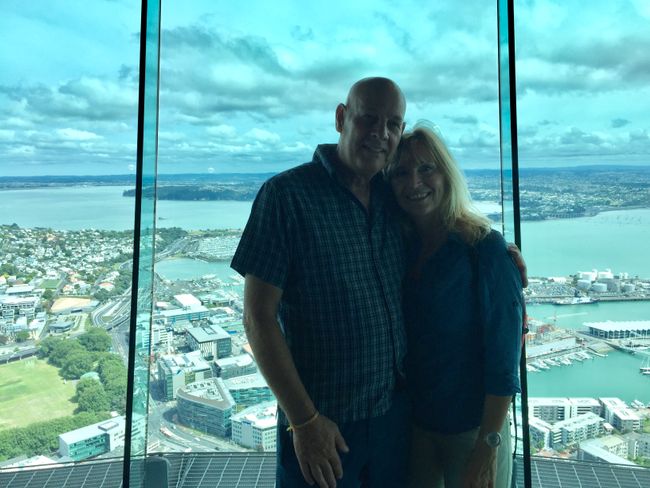
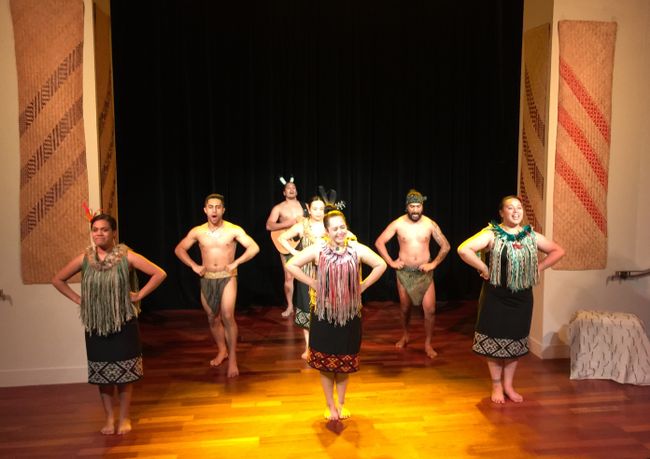
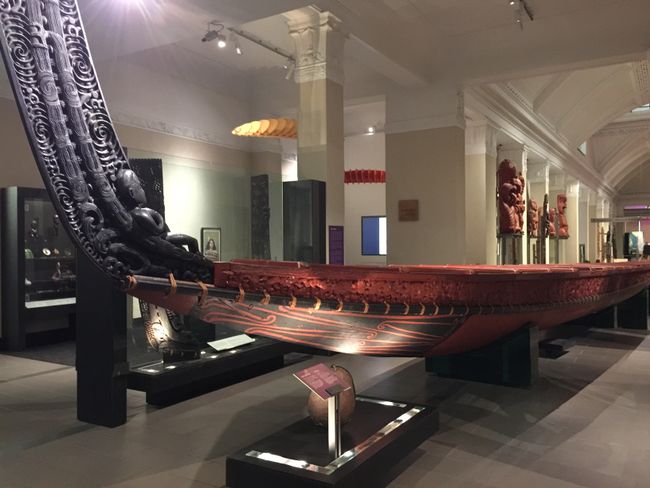
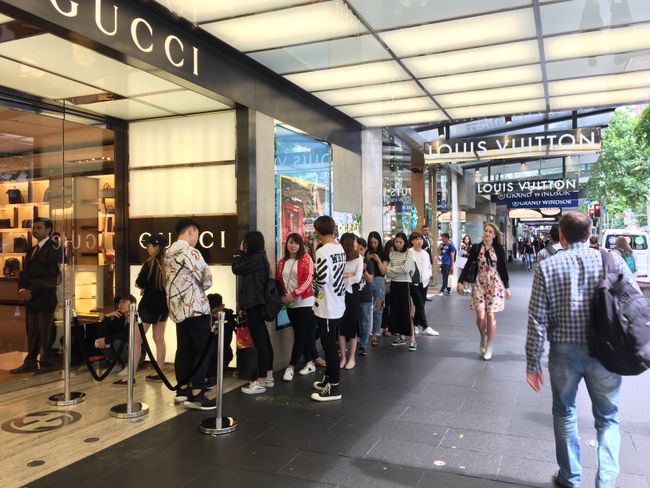
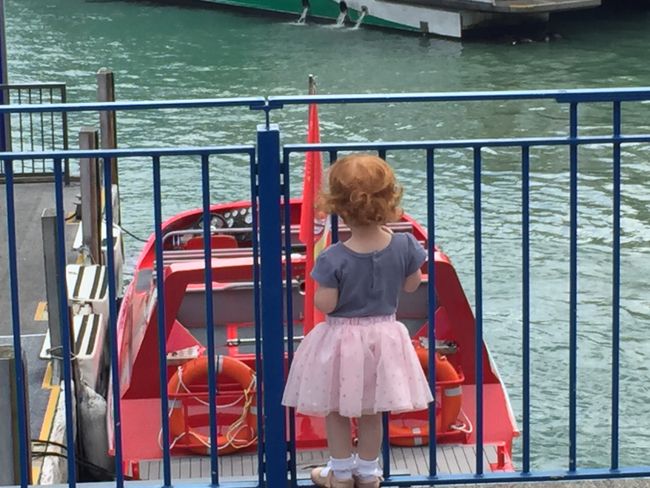
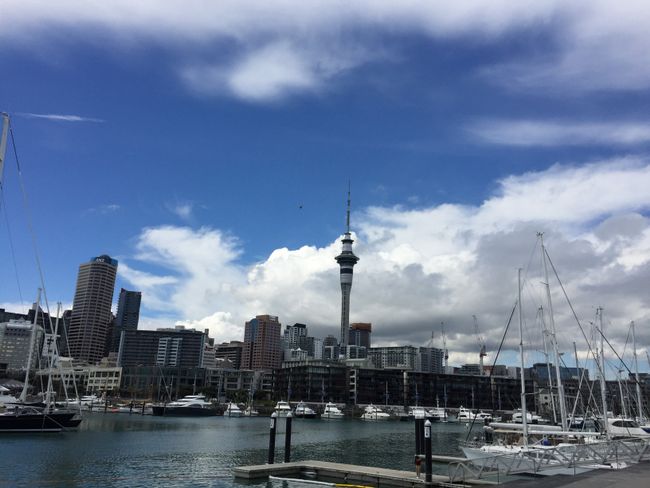
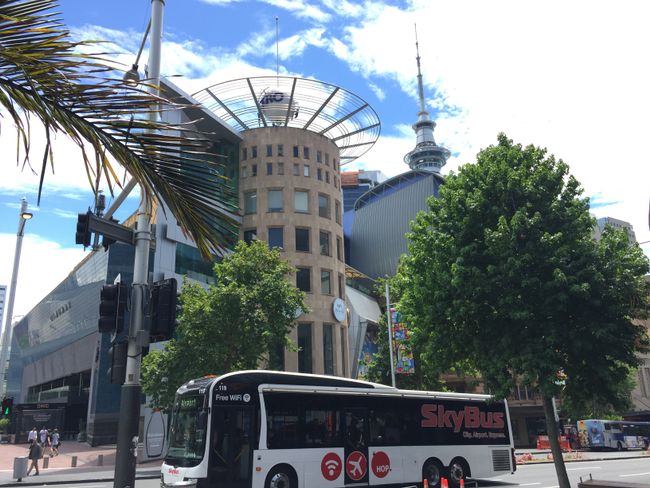
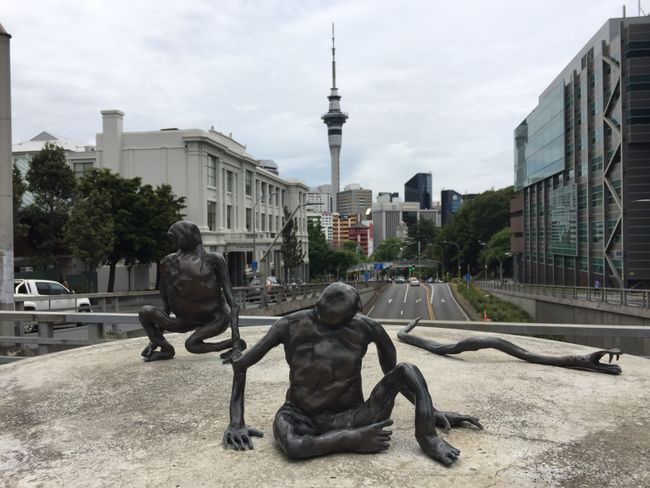
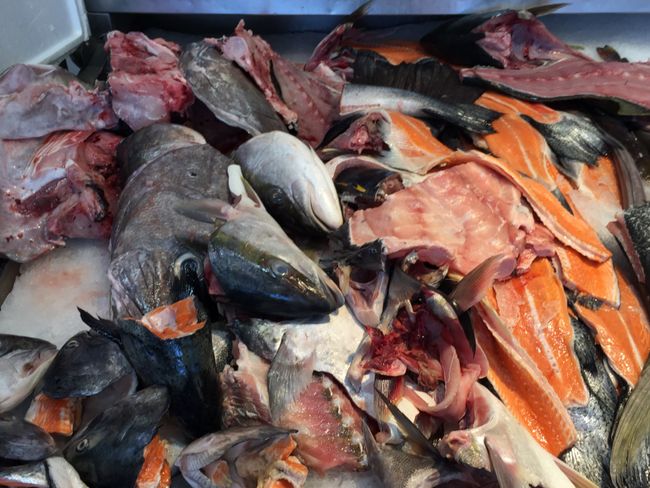
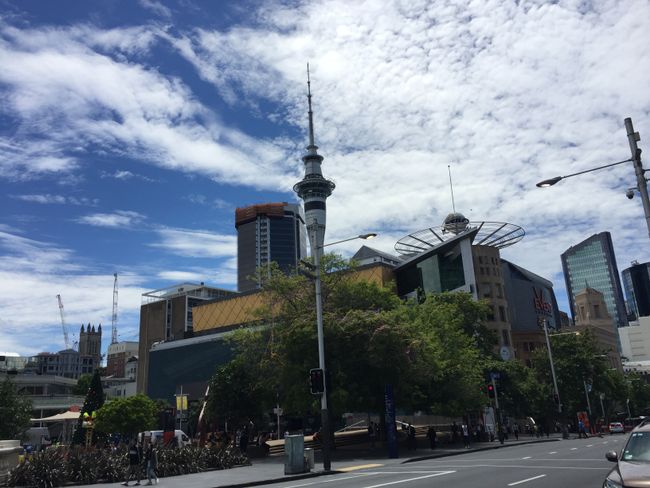
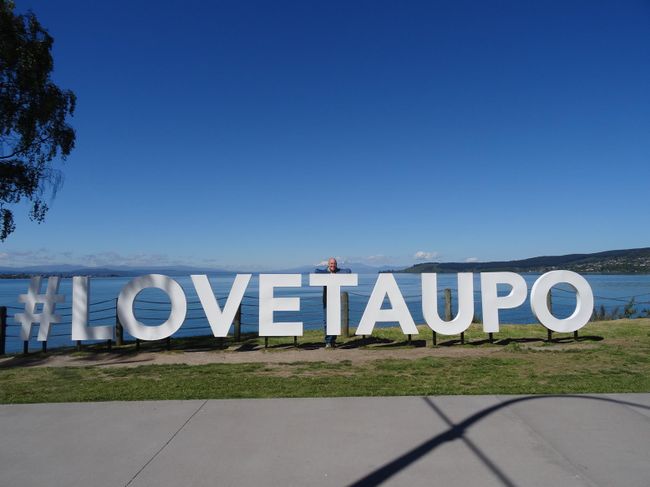
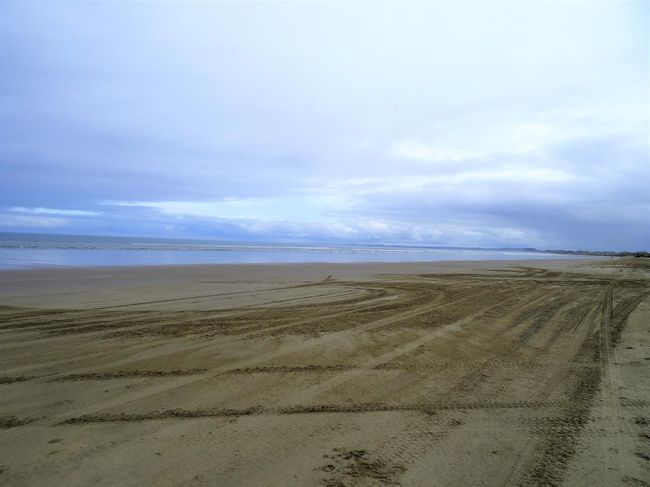
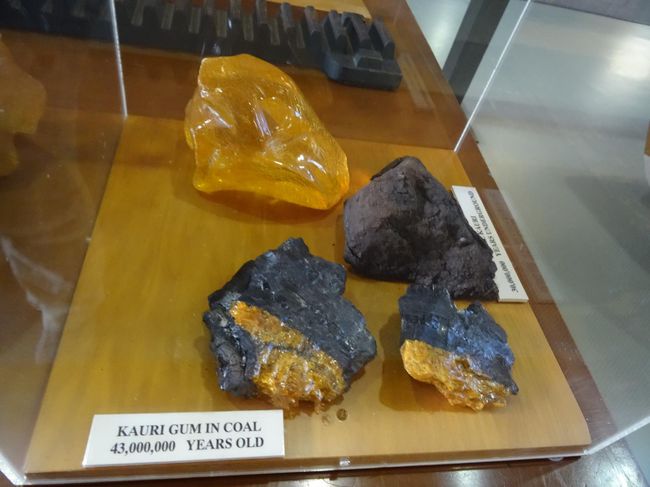
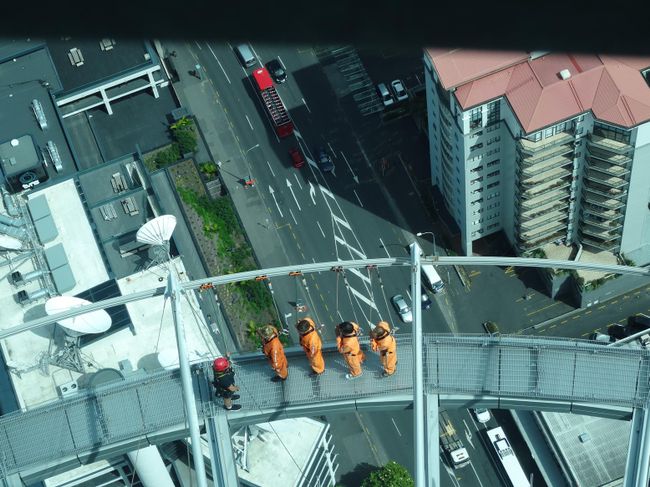
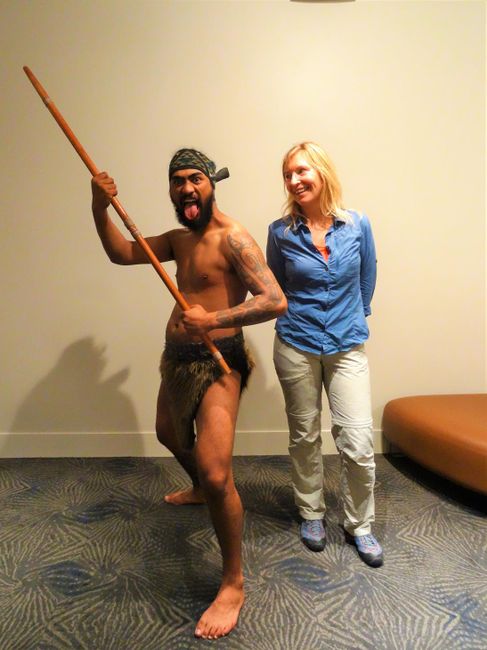
समाचार पत्रिका के लिए सदस्यता लें
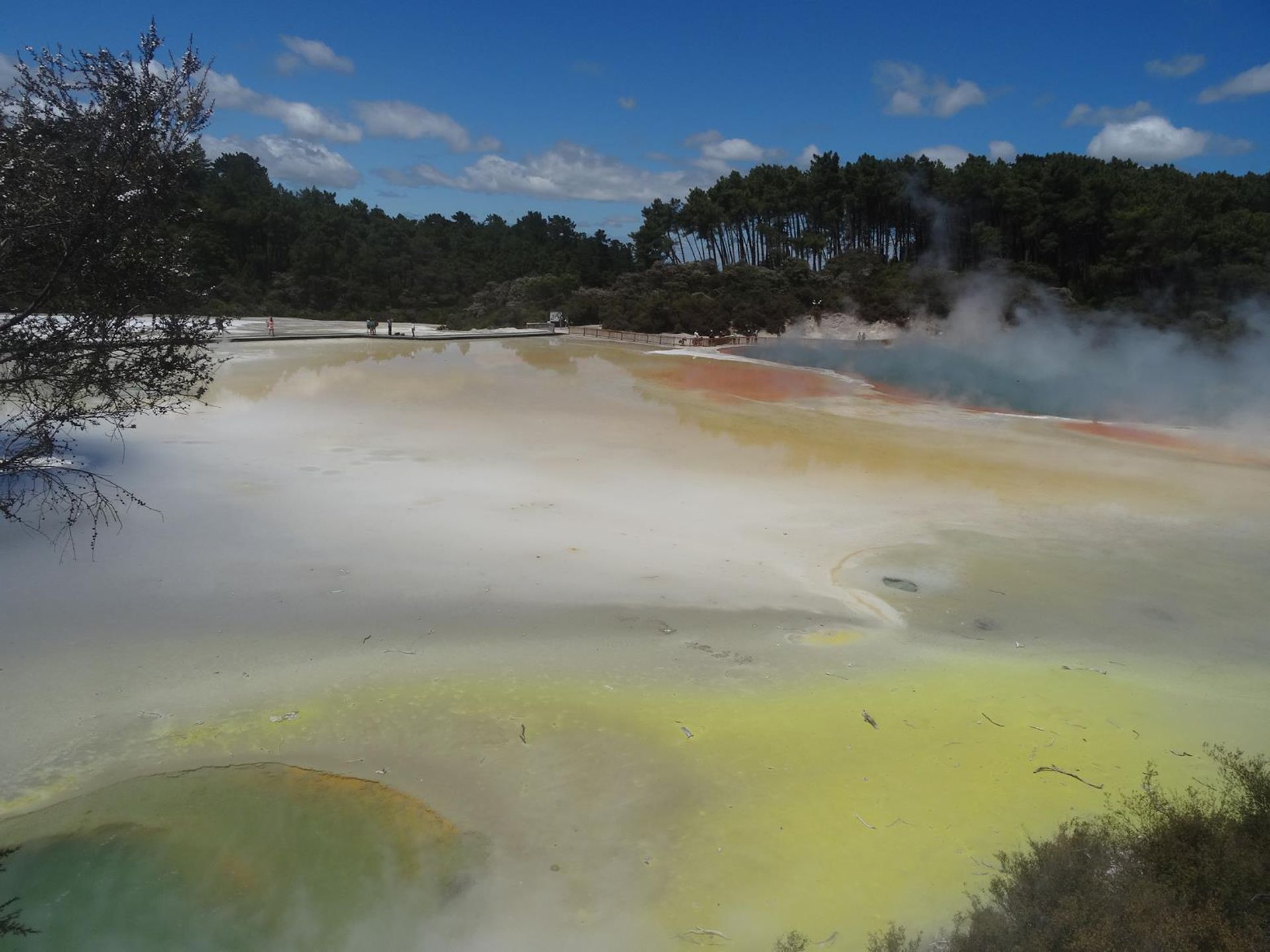
North Island
After about a three-hour ferry ride, we reached Wellington in the evening.
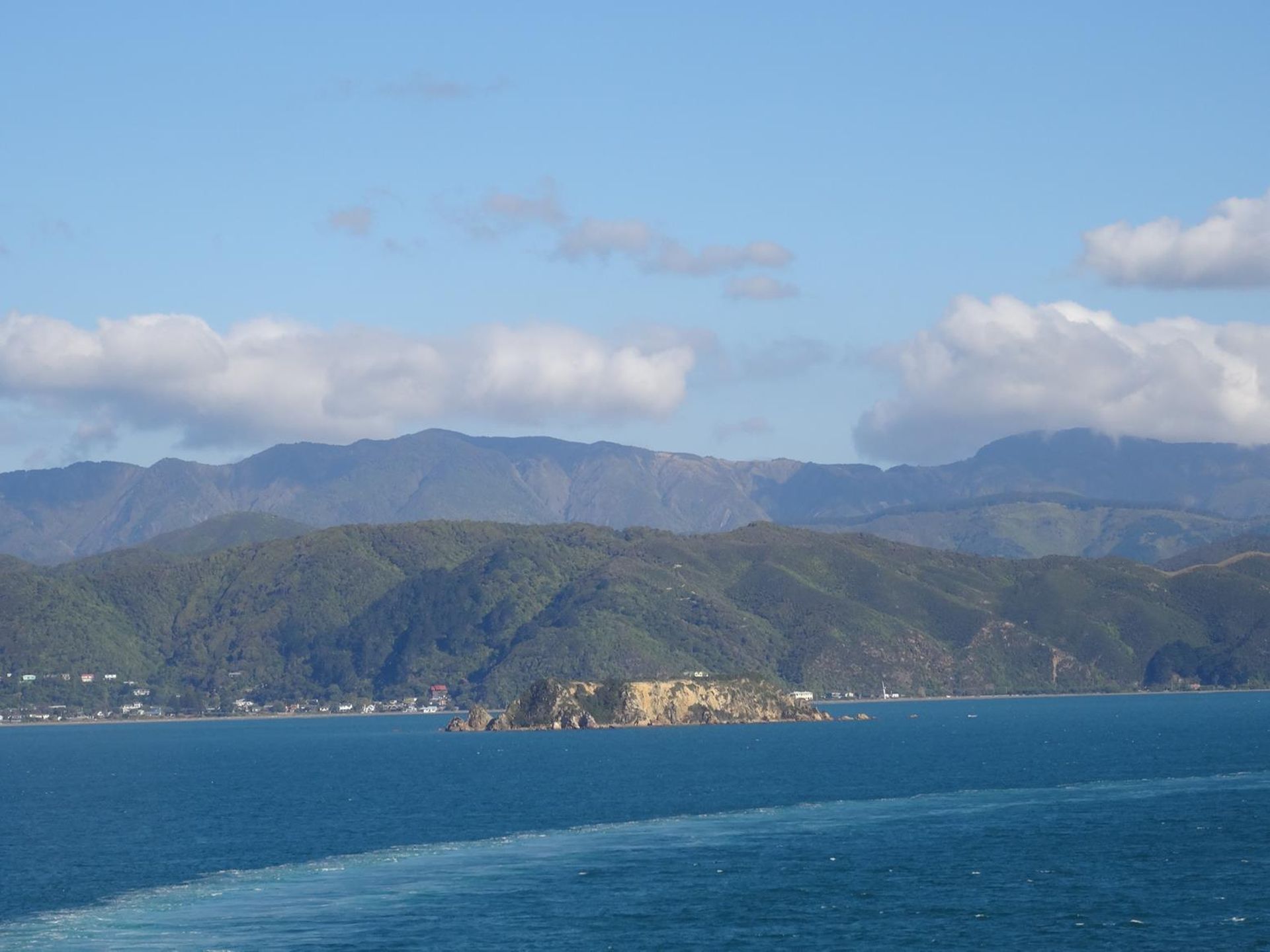
The next morning, we decided to continue further north to Palmerston North for now.
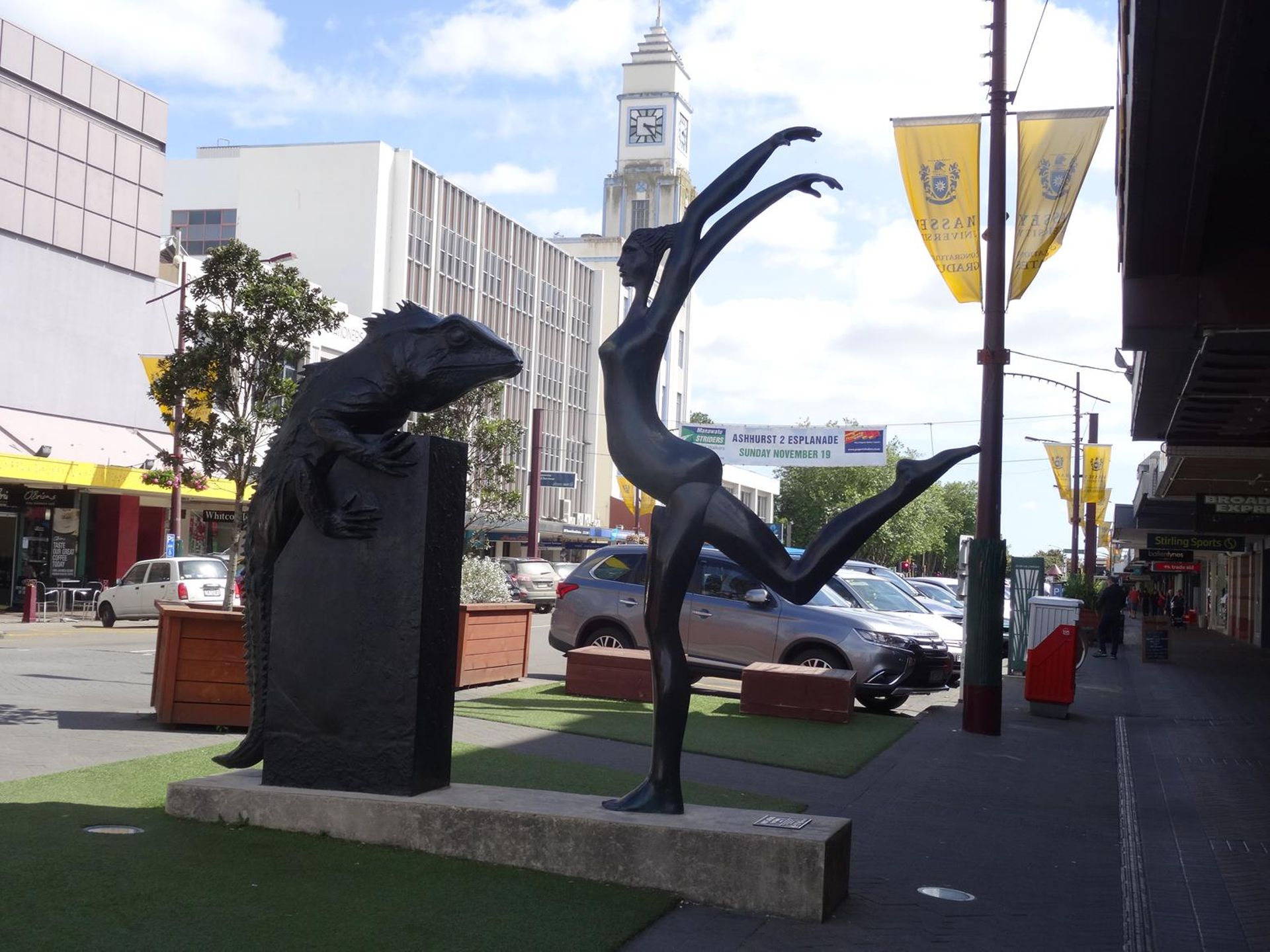
This business sign is no joke- it really is the name of a jeweler and watchmaker in Palmerston North.
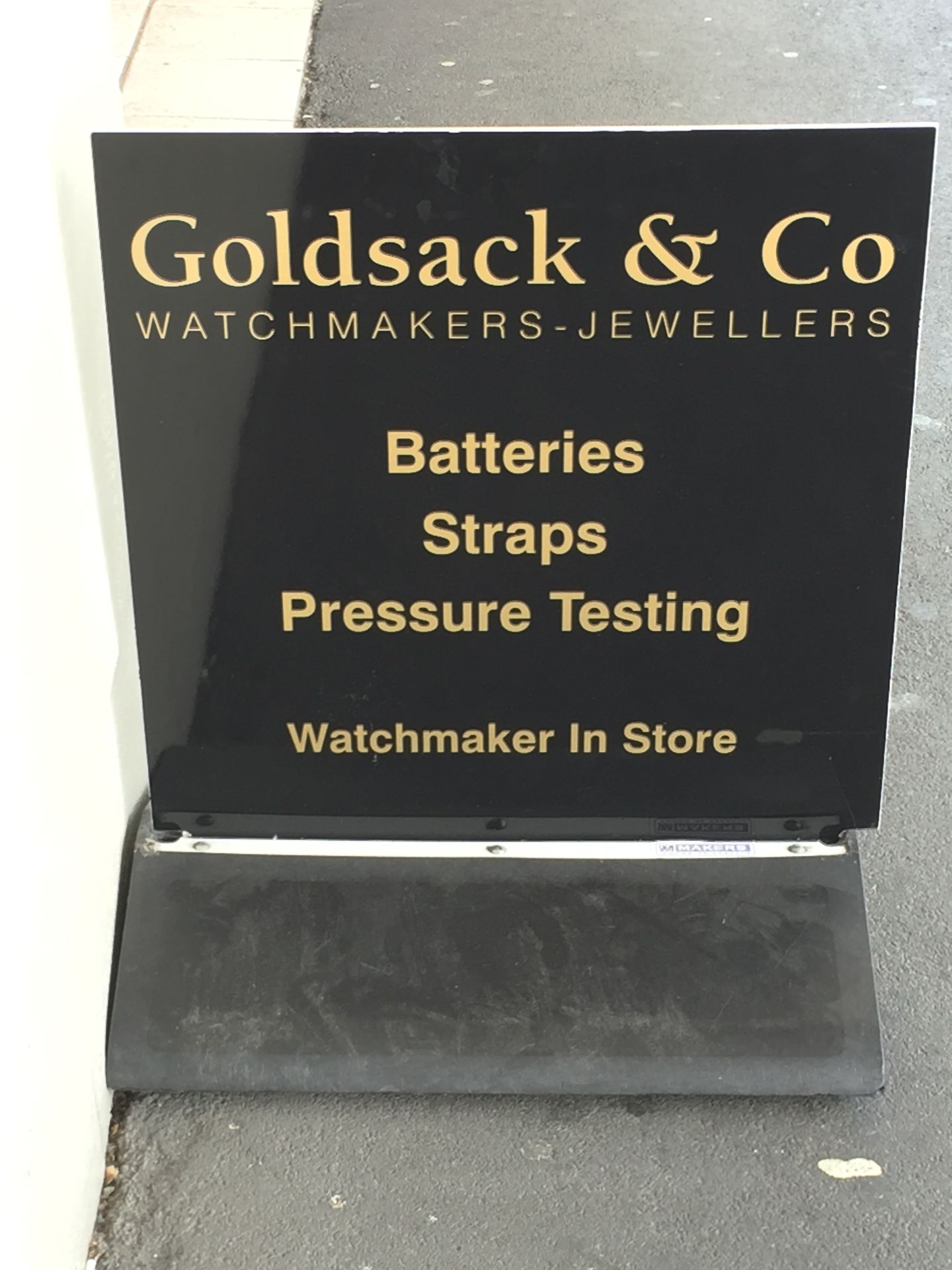
On the way, we passed by a llama farm. This cute creature seems to have just been sheared recently.
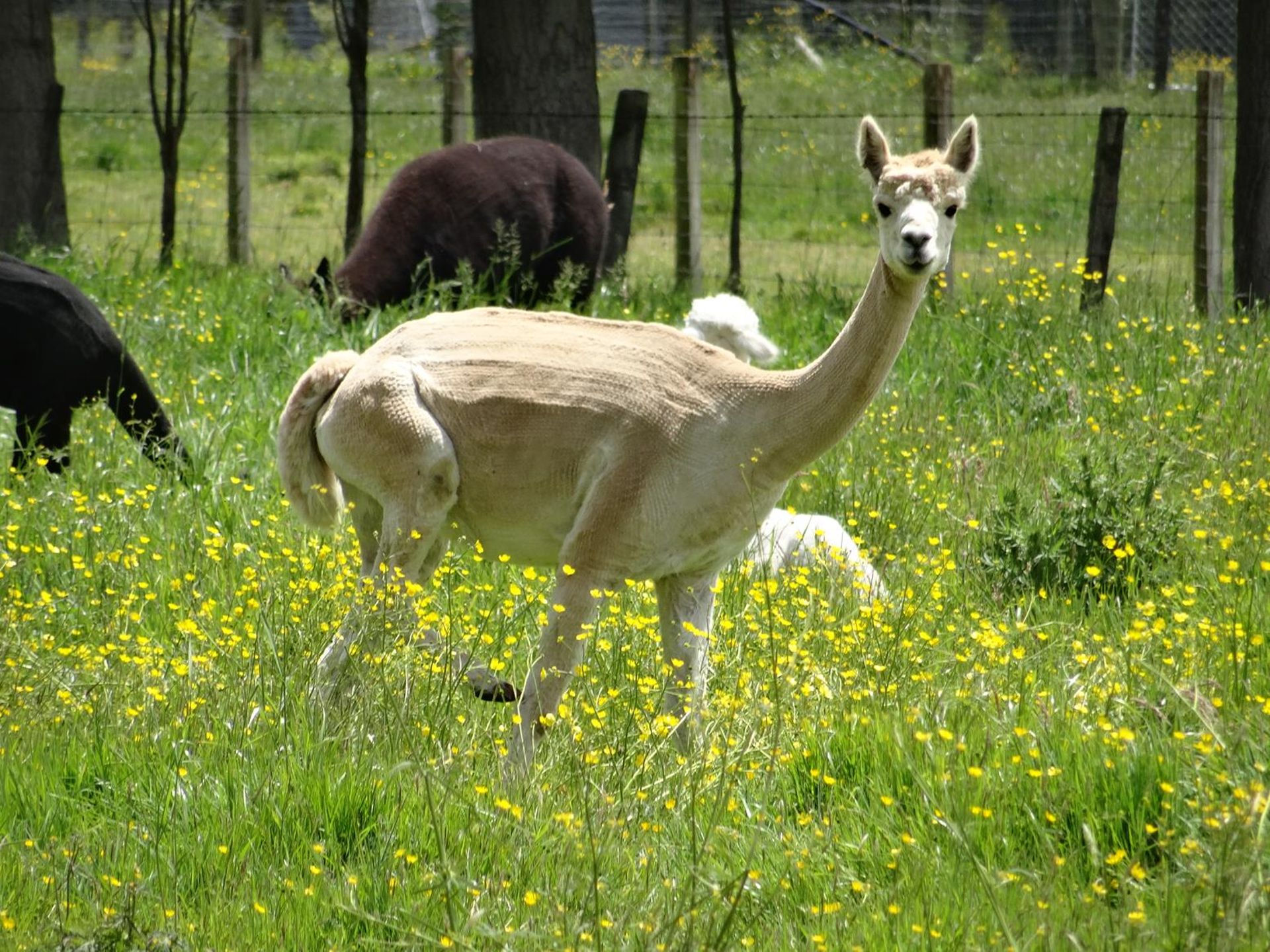
We continued to Whakapapa, a popular ski area. But since we are not winter sports enthusiasts, we were not interested;). We hiked to the Taranaki Falls, which cascade down hardened lava rock.
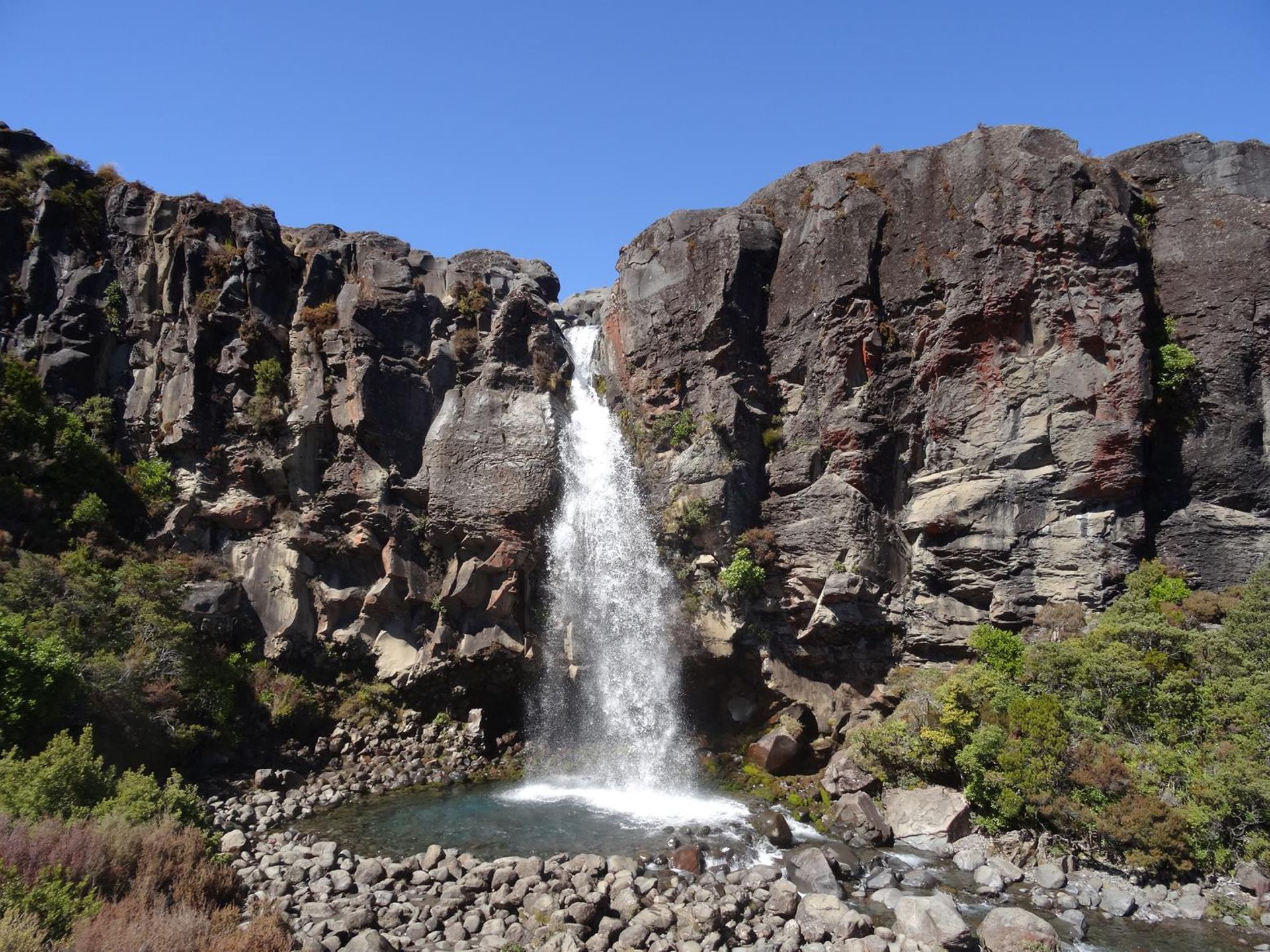
The Taranaki, a snow-covered volcanic cone, is considered the mountain god in Māori mythology.

Afterwards, we continued to Taupo, where we visited the Craters of the Moon, an area where hot vapours called fumaroles rise from the ground.
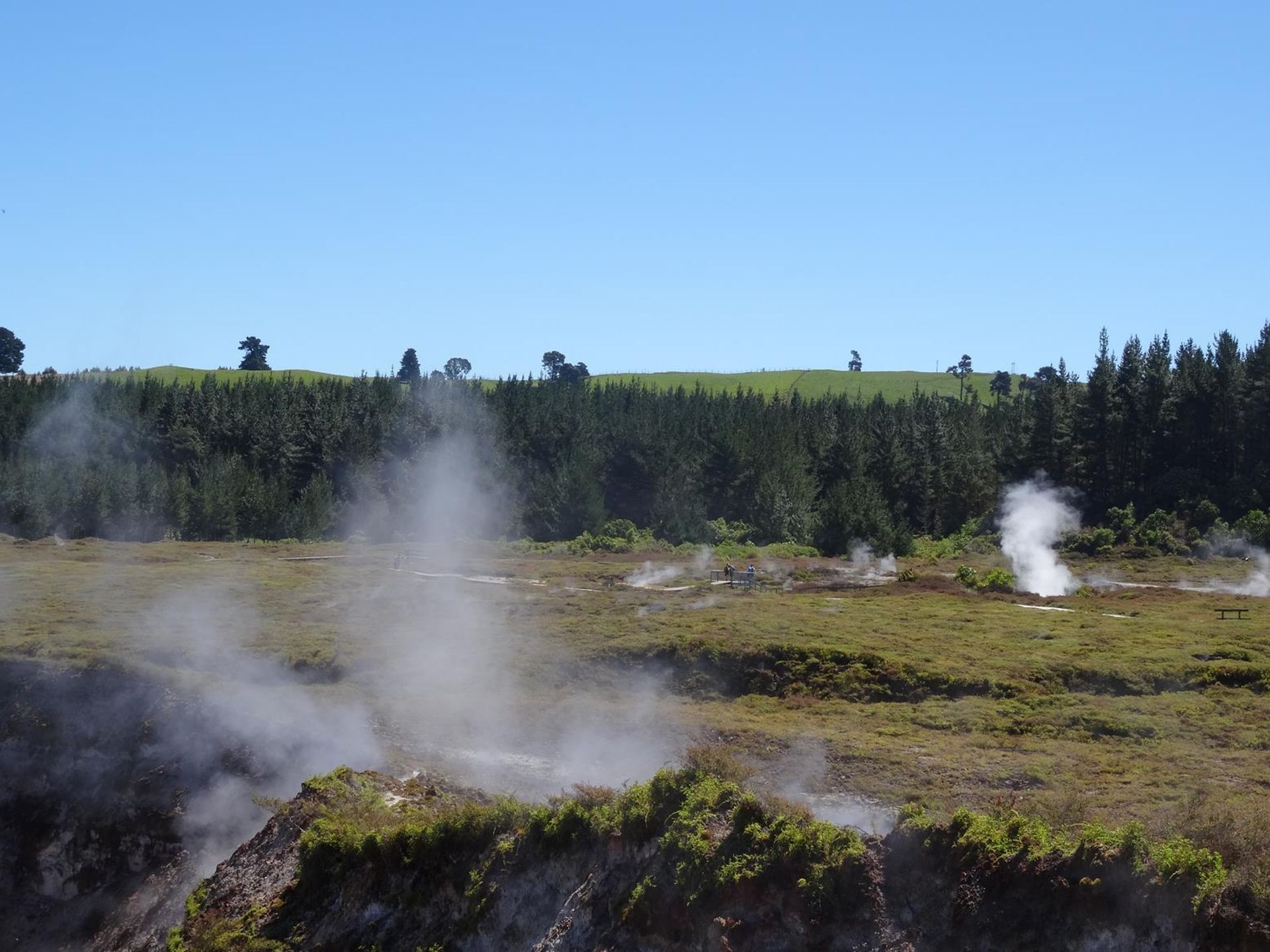
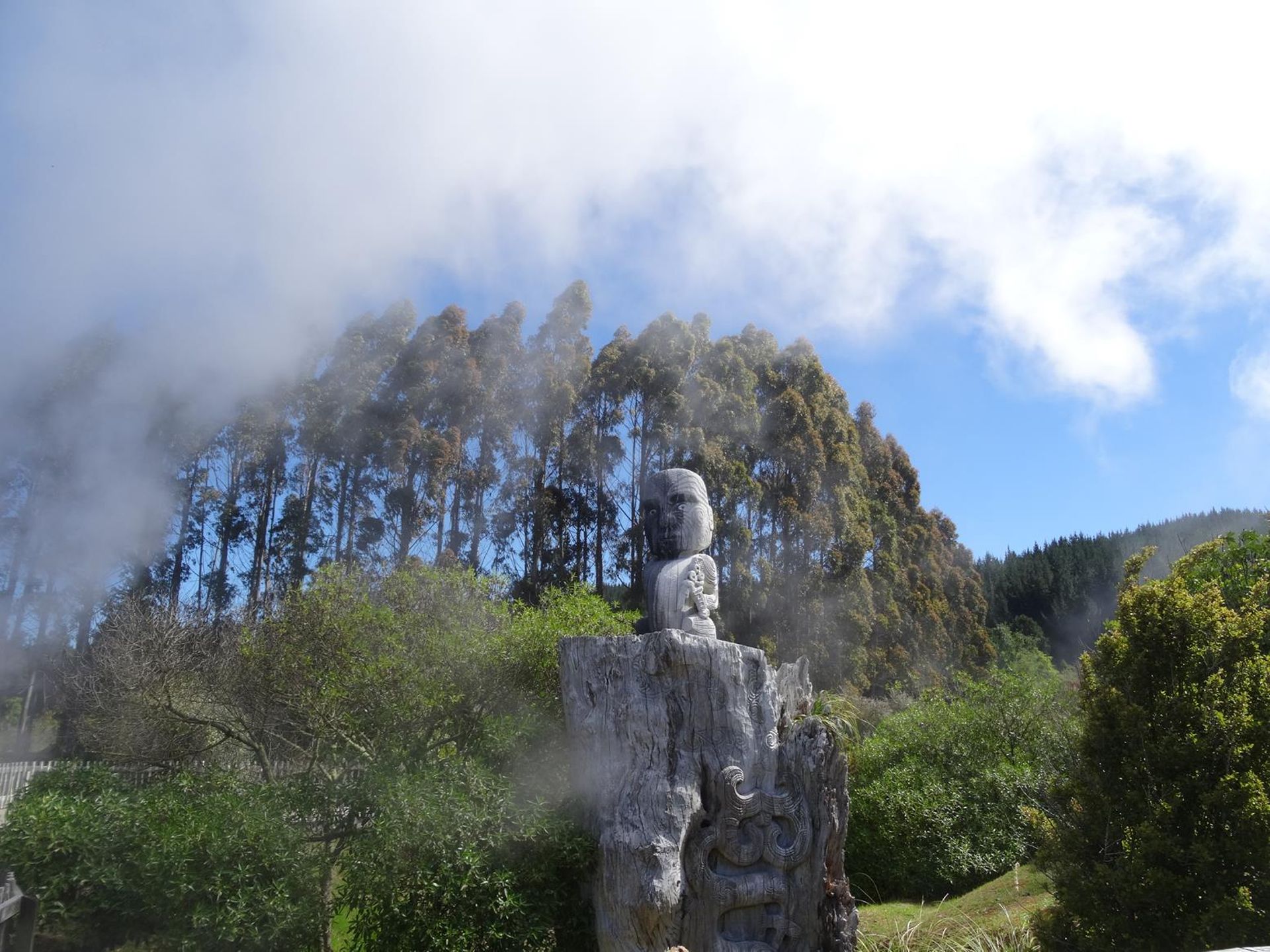
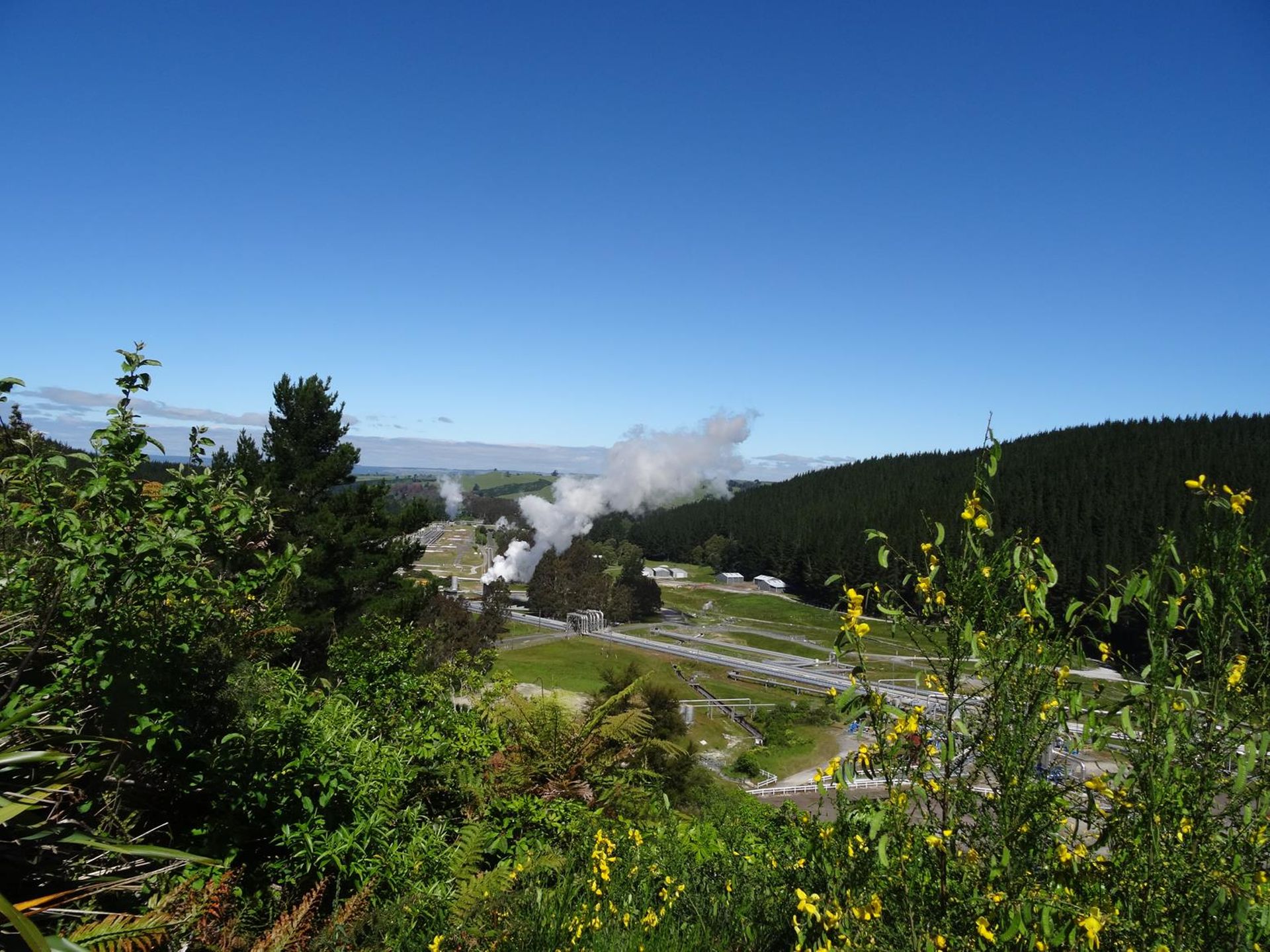
New Zealand relies on green energy; the hot vapours are used for a geothermal power plant in Wairakai.
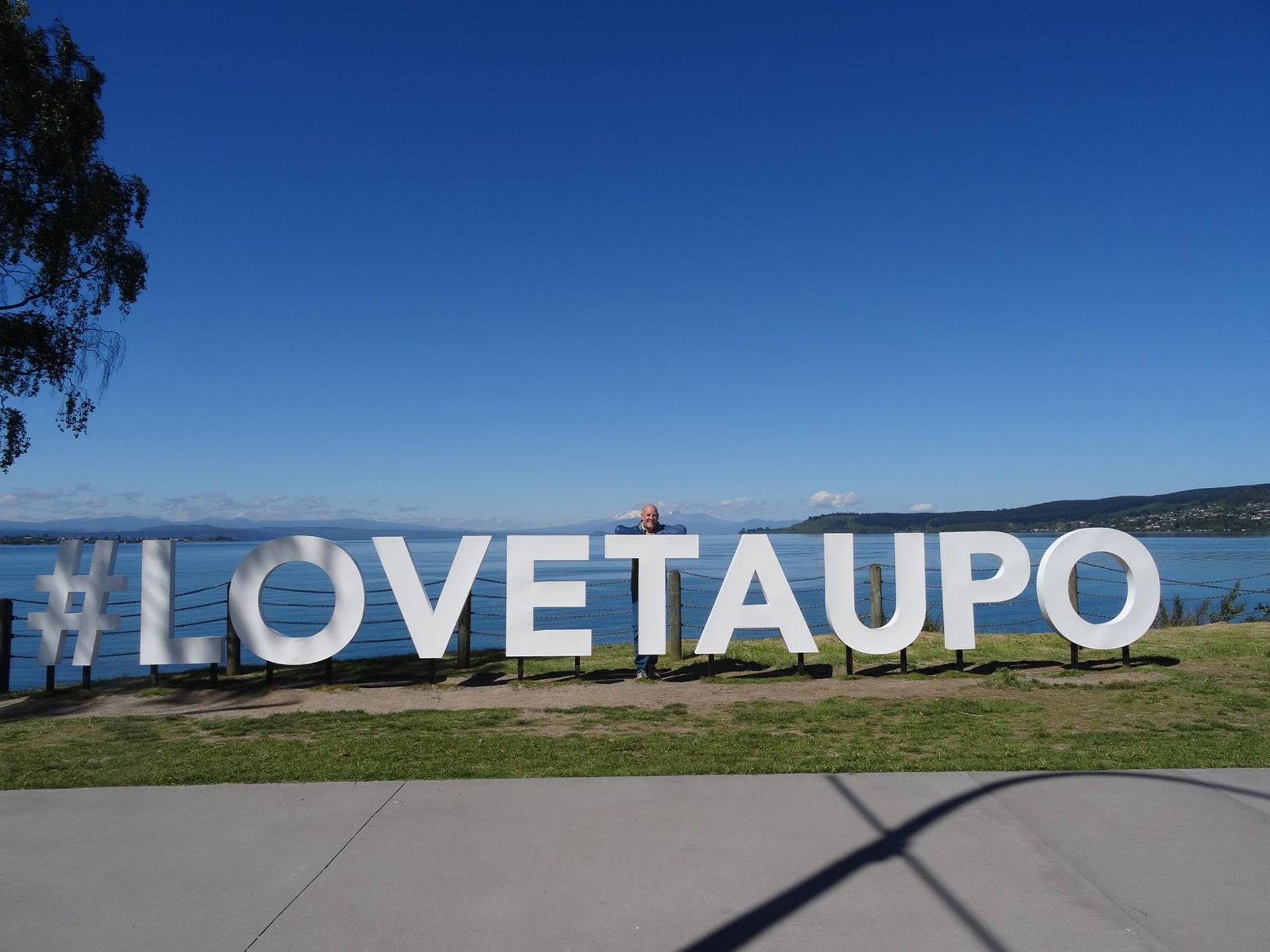
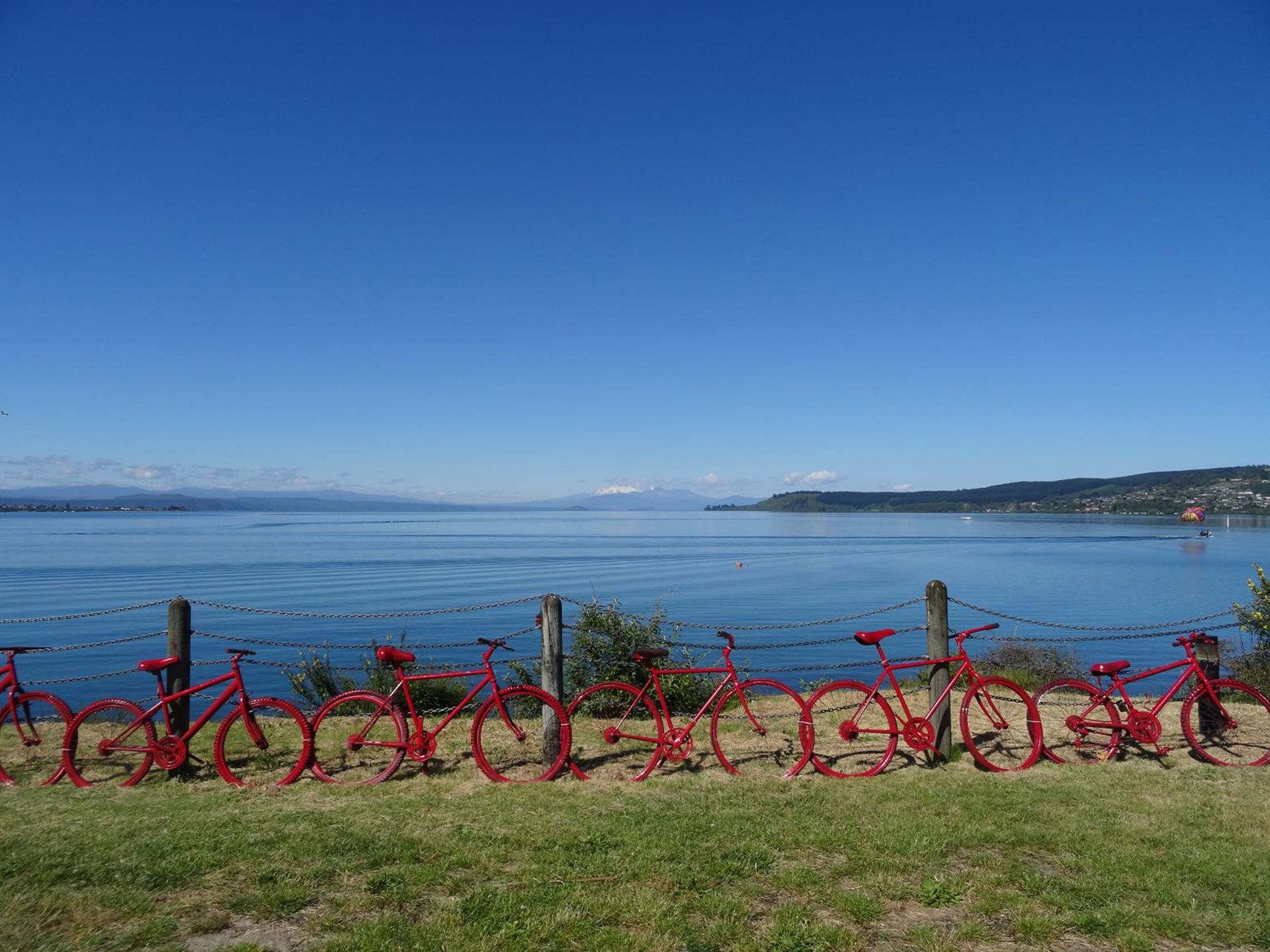
Close by are the Huka Falls, a truly powerful waterfall where 200,000 litres of water per second plunge about 10m down.
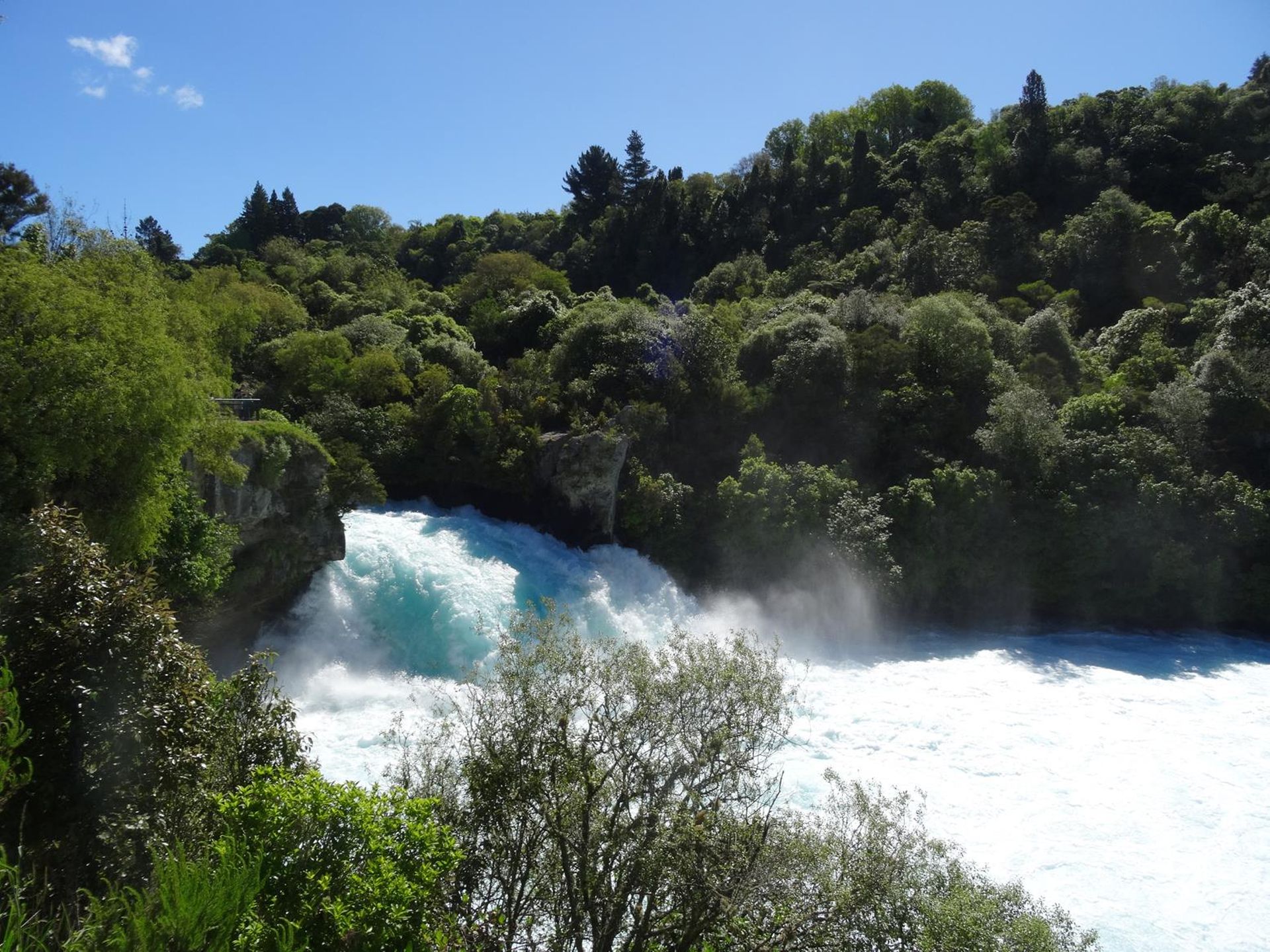
Wai-O-Tapu is truly colorful but also quite smelly due to the hydrogen sulphide vapours. At certain times, the bubbling geysers spout high fountains into the air. Interestingly, always exactly at 10:15. The explanation for this is that the fountains are given a little 'help' with the addition of detergent, for the sake of tourism, to ensure they go off on time. We skipped the spectacle, but it was still very impressive for us.

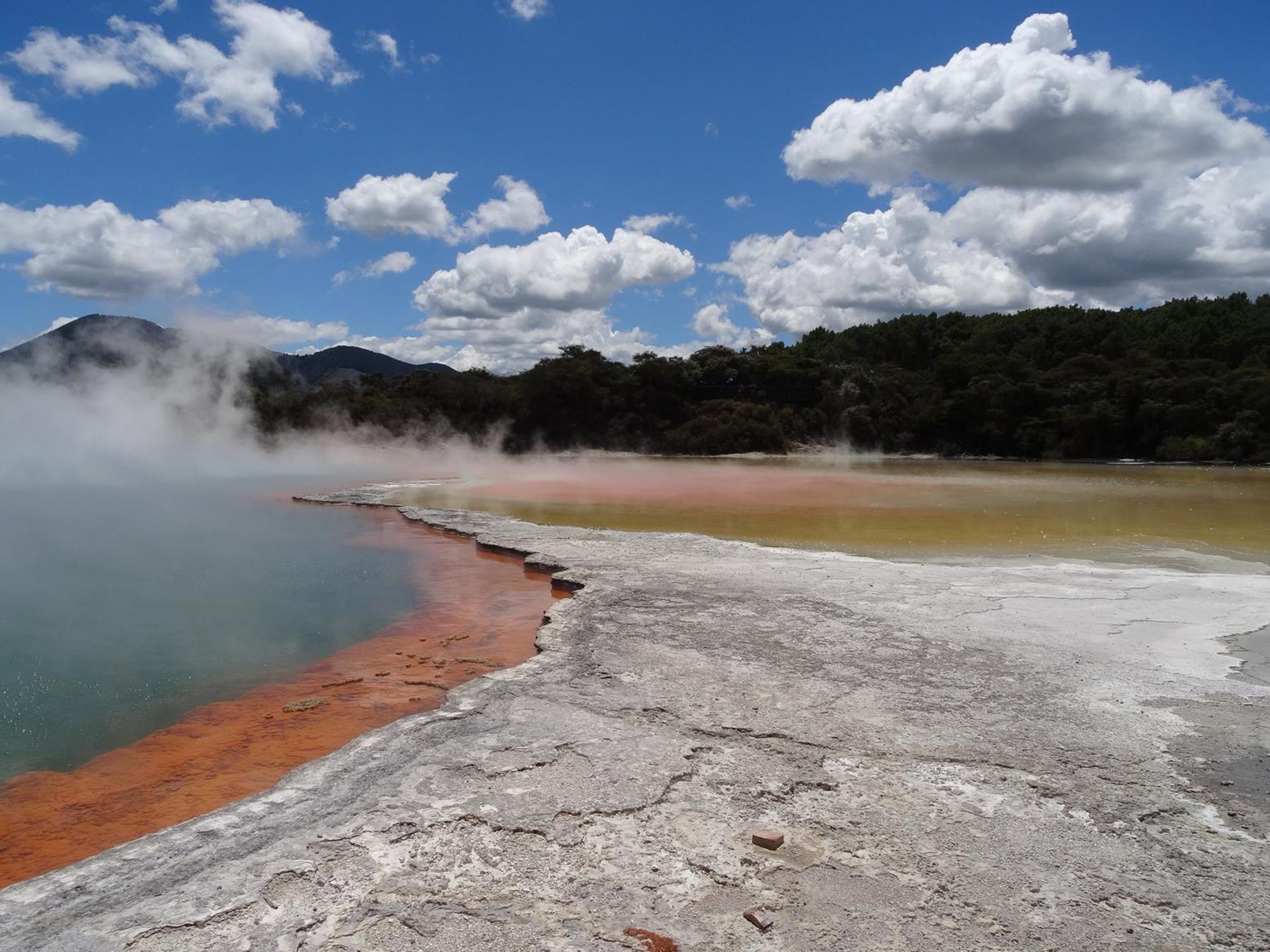
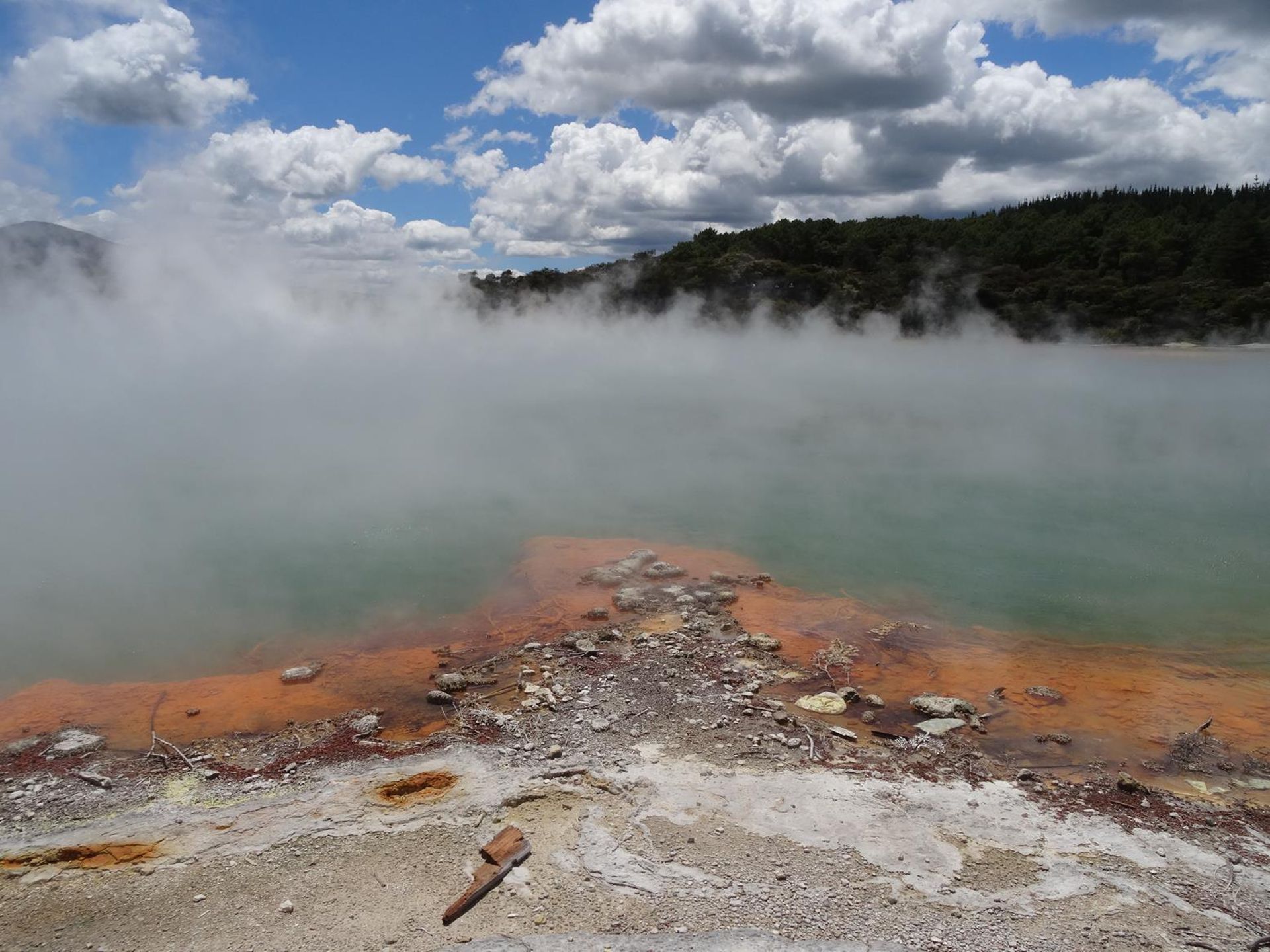
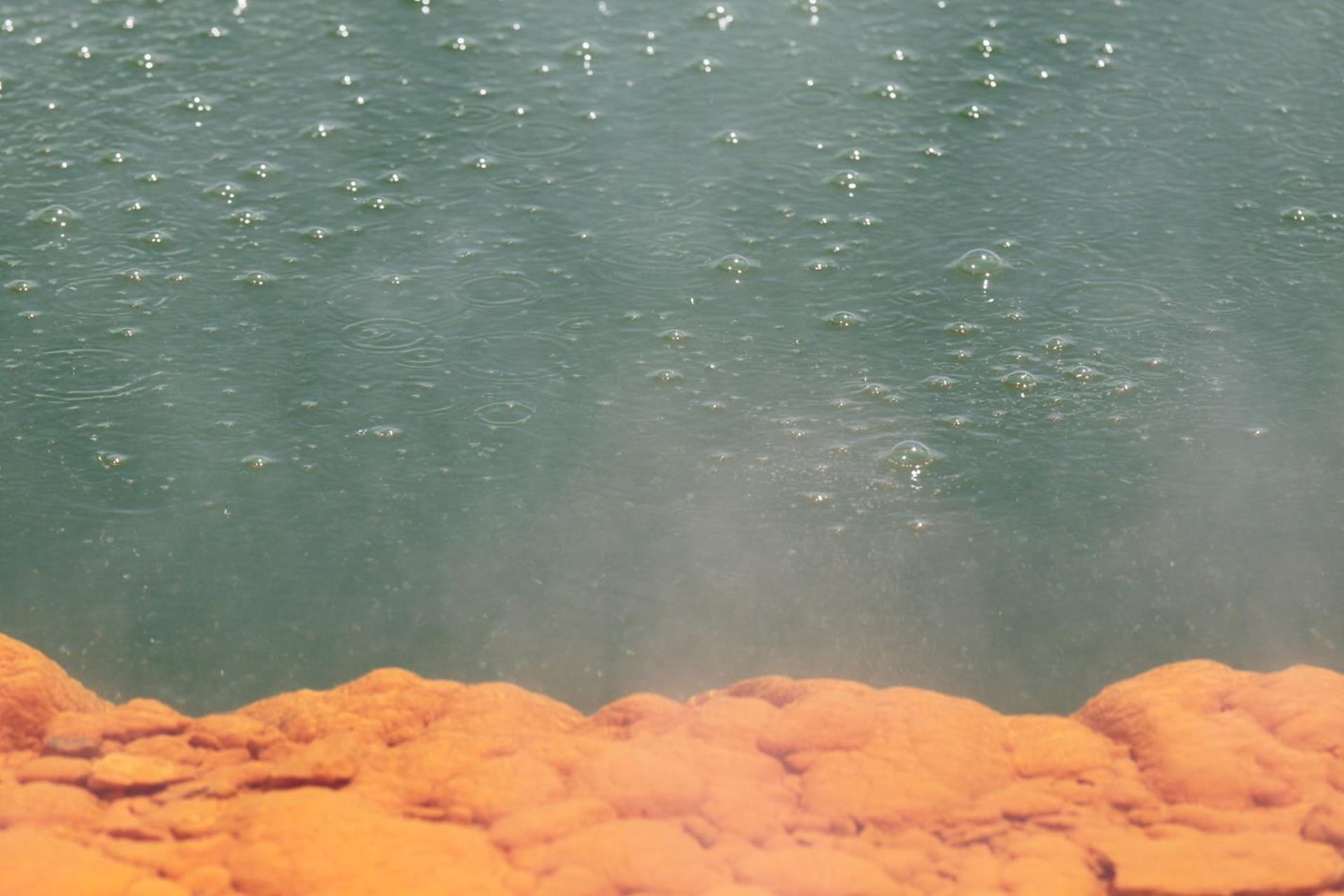
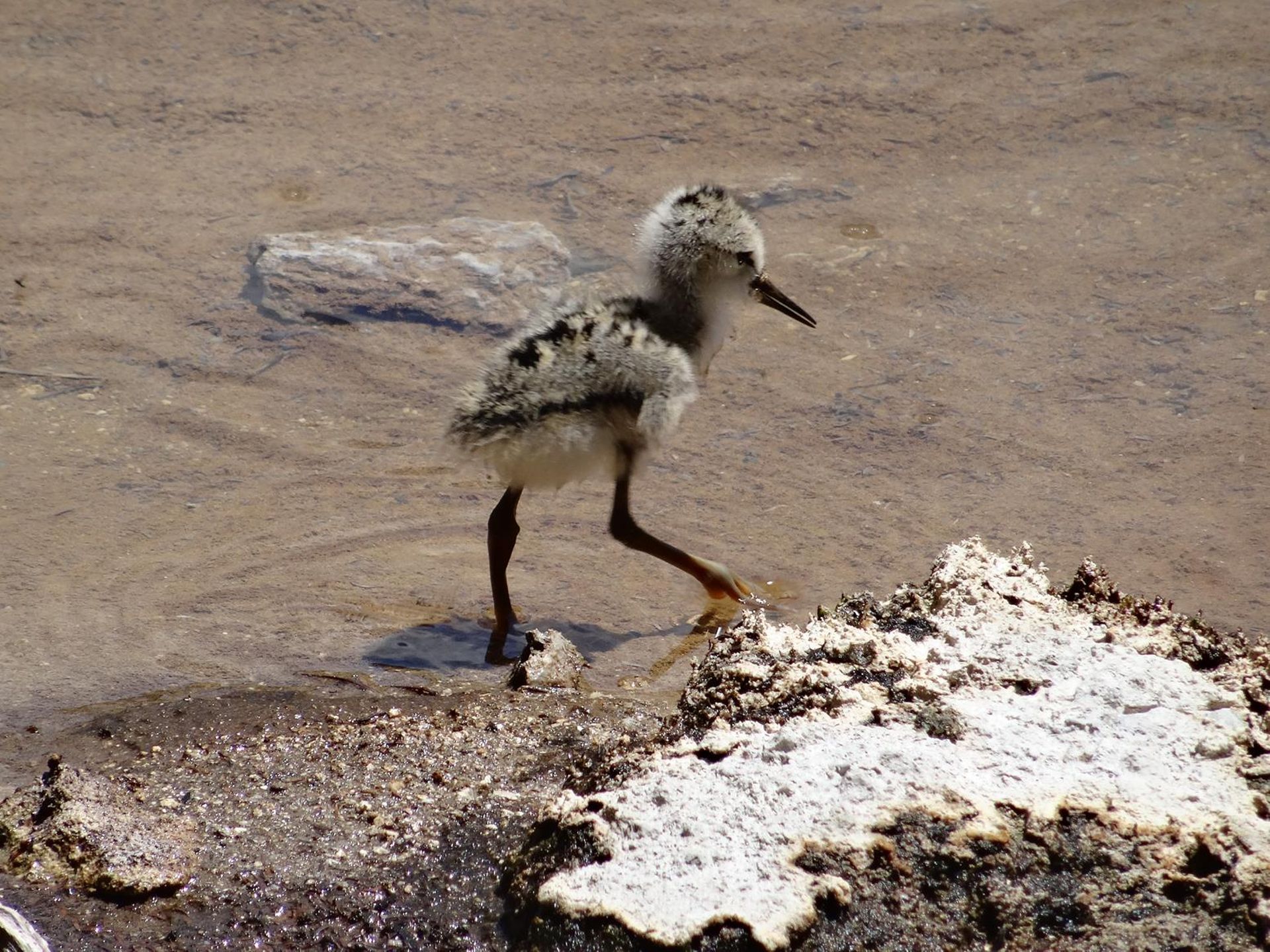
A very beautiful hike led us to Cathedral Cove, at a bay on the Coromandel Peninsula.
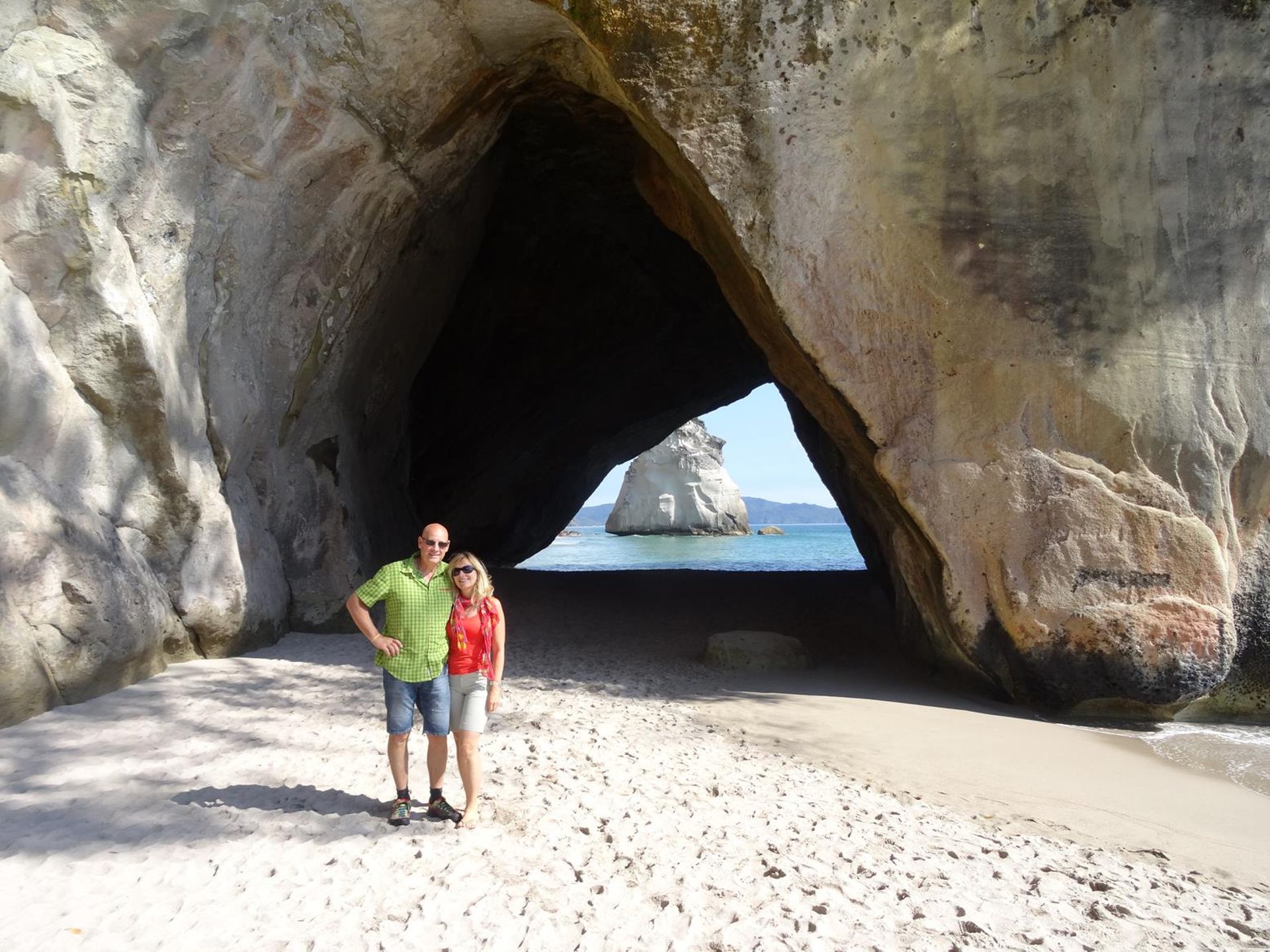

There was lots of fun at Rotorua's Hot Water Beach, like being in a giant sandbox for adults;). Two hours before and after low tide, this spot is accessible, and hot springs bubble up from the sand in the middle of the beach. During these times, many people armed with shovels gather to dig their own thermal pools. They dig and frolic with great enthusiasm;)!
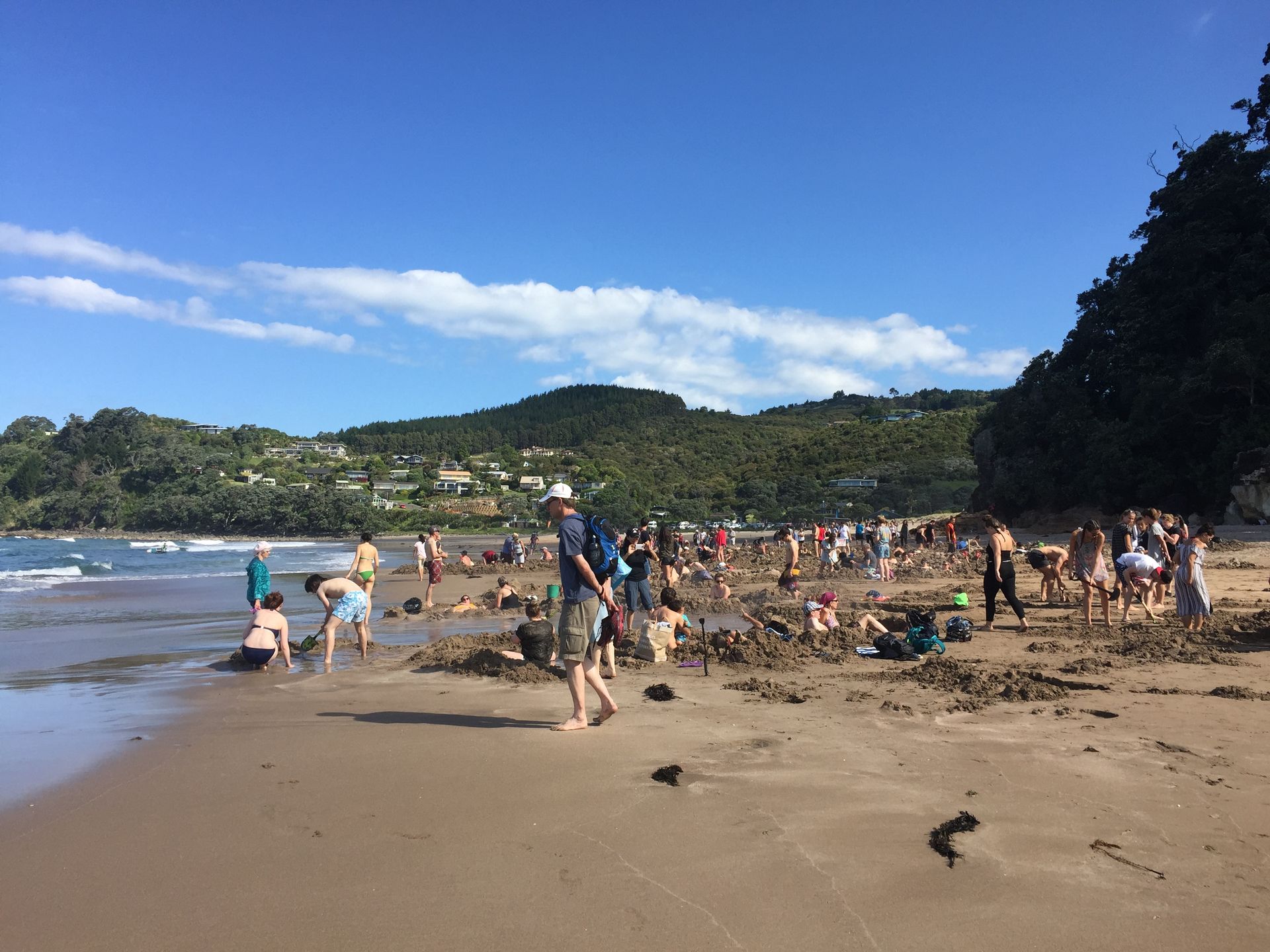
Christmas is just a few weeks away. Even at the beach, you can find creative interpretations of Christmas trees to set the mood. This driftwood tree caught our attention!
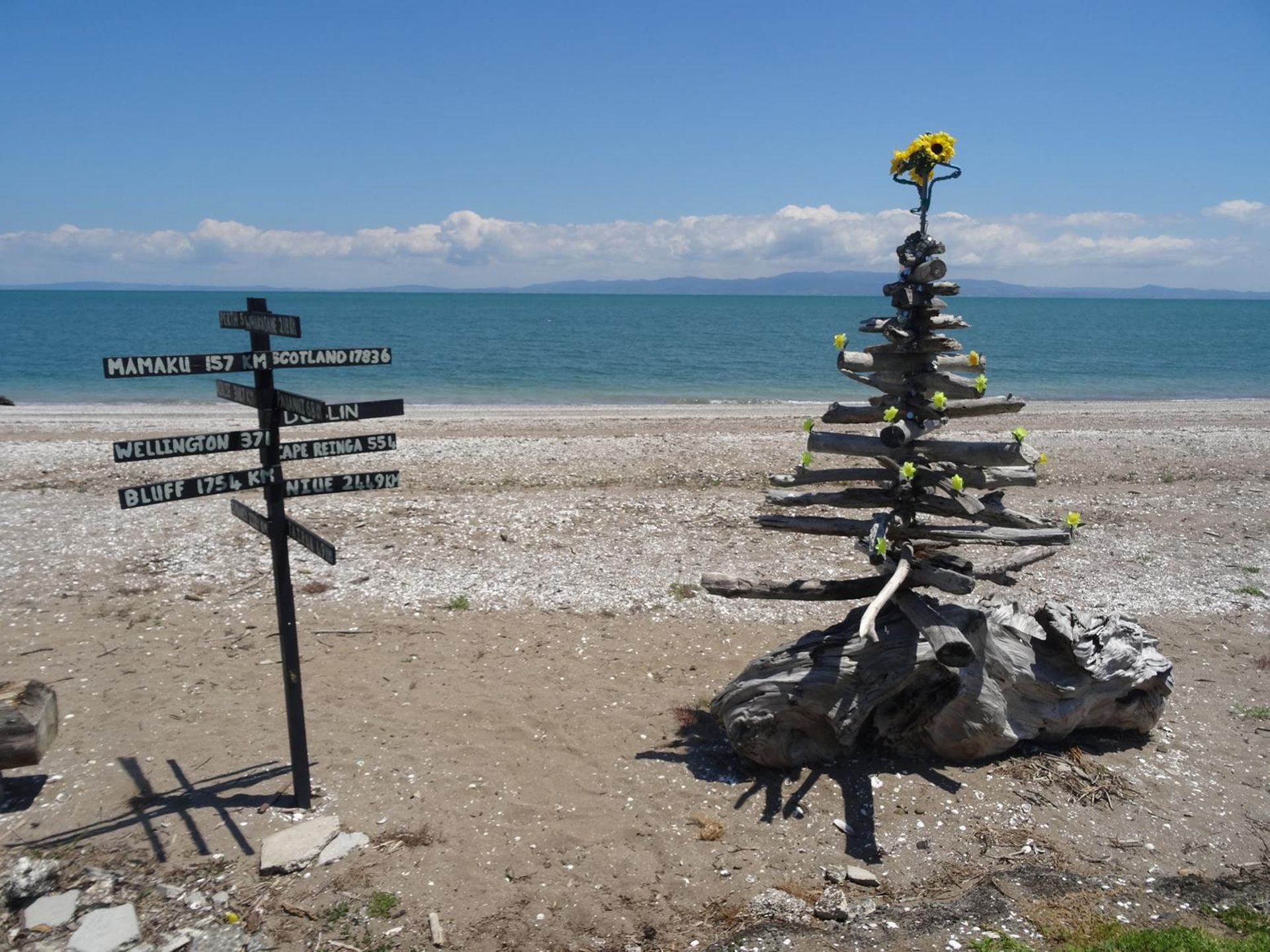
Kawakawa wouldn't necessarily deserve special mention if it weren't for a public toilet designed by Friedensreich Hundertwasser. What I didn't know before is that from 1973 until his death, Hundertwasser lived in very simple conditions near Kawakawa without electricity and eventually gained New Zealand citizenship.
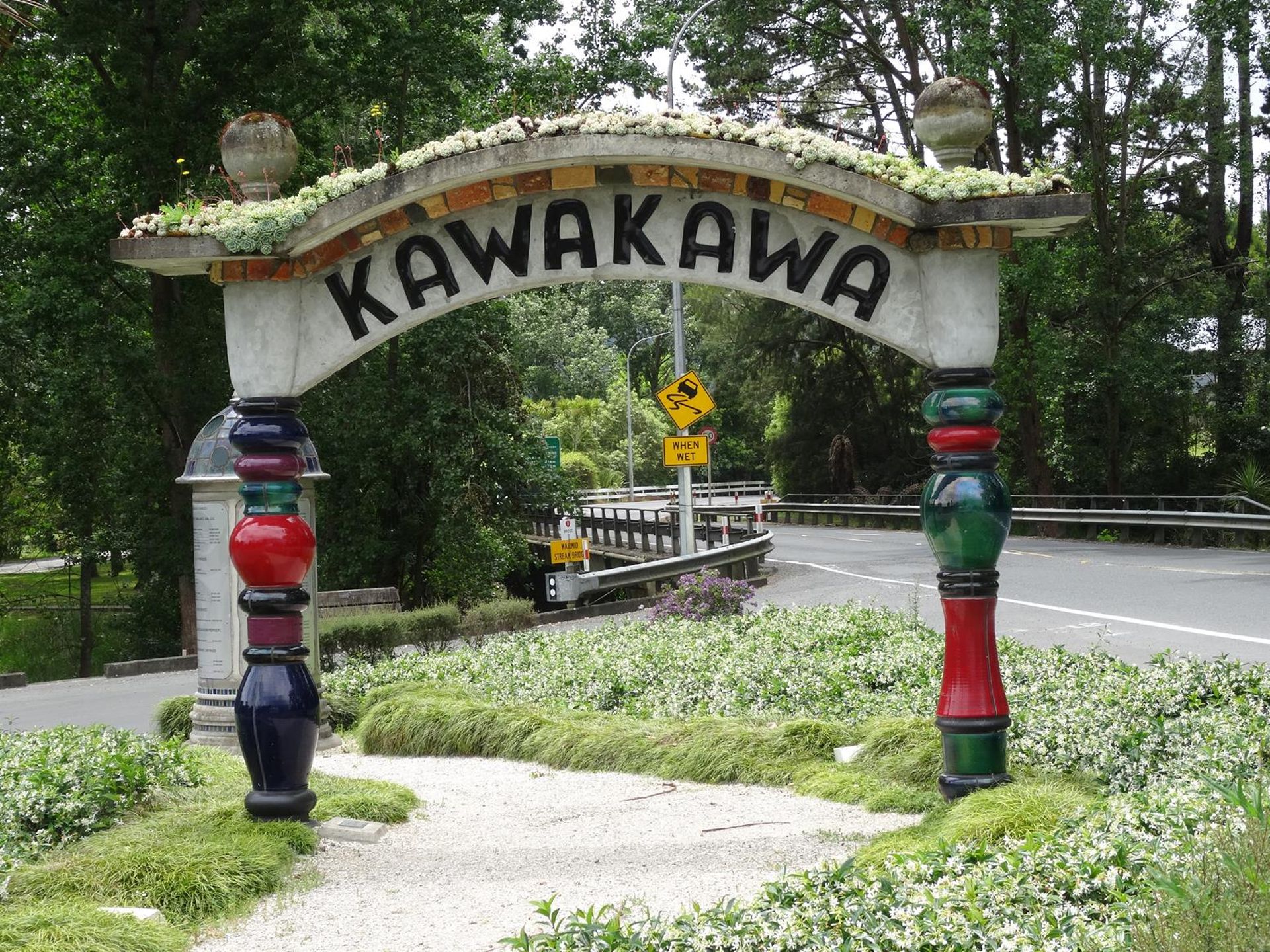
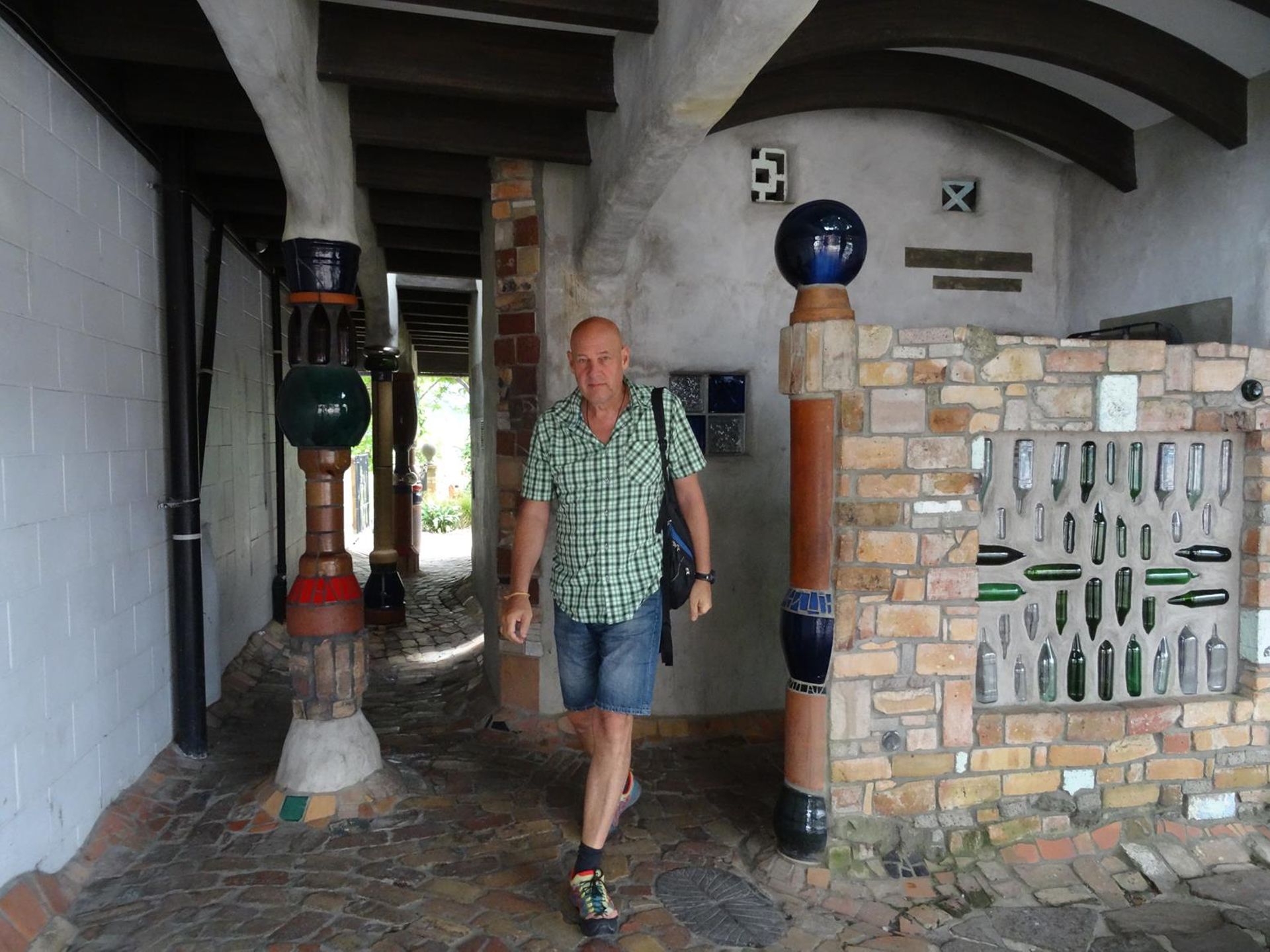
Paihia is the main access point to the Bay of Islands, a very picturesque area with many beautiful beaches. We experienced the Saturday art market when a huge cruise ship had just dropped off a horde of tourists and flooded the place. As observed in other places, this brings money to the region but unfortunately also takes away some of its charm.
In the neighboring town of Waitangi, the treaty between the British Crown and Māori chiefs was signed in 1840, agreeing on New Zealand's affiliation to Great Britain.
New Zealand truly stands for versatility- in every way! Besides endless amounts of green, you will not only encounter volcanoes and geysers but also giant sand dunes in the North- the Te Paki Sand Dunes.
Here you can zoom down the steep dunes on a sandboard at breathtaking speed.
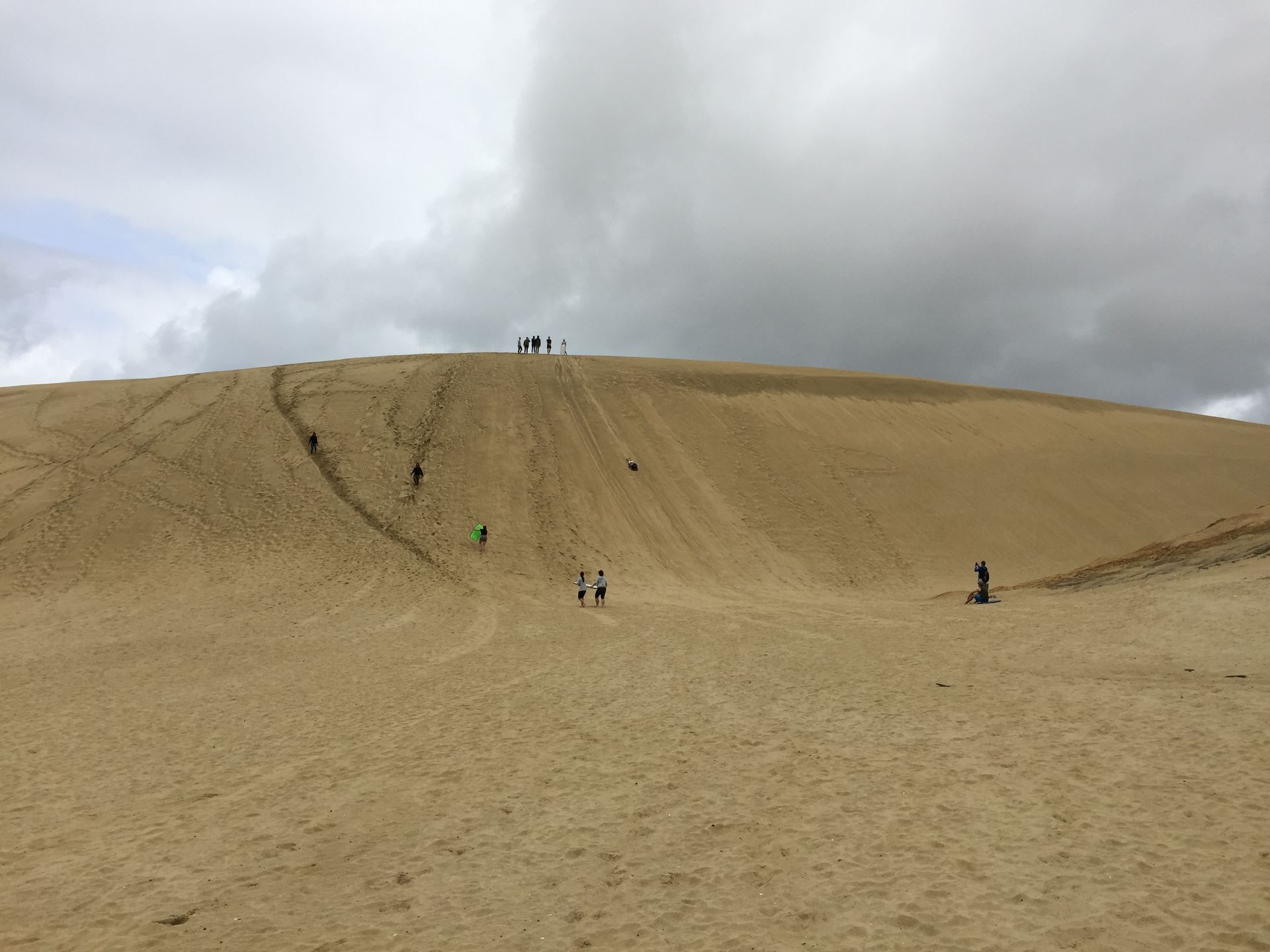
The Cape Reinga is especially meaningful to the Māori. From here, the souls of the dead rise and embark on their journey to their spiritual homeland. The Aupouri Peninsula looks like a giant springboard.
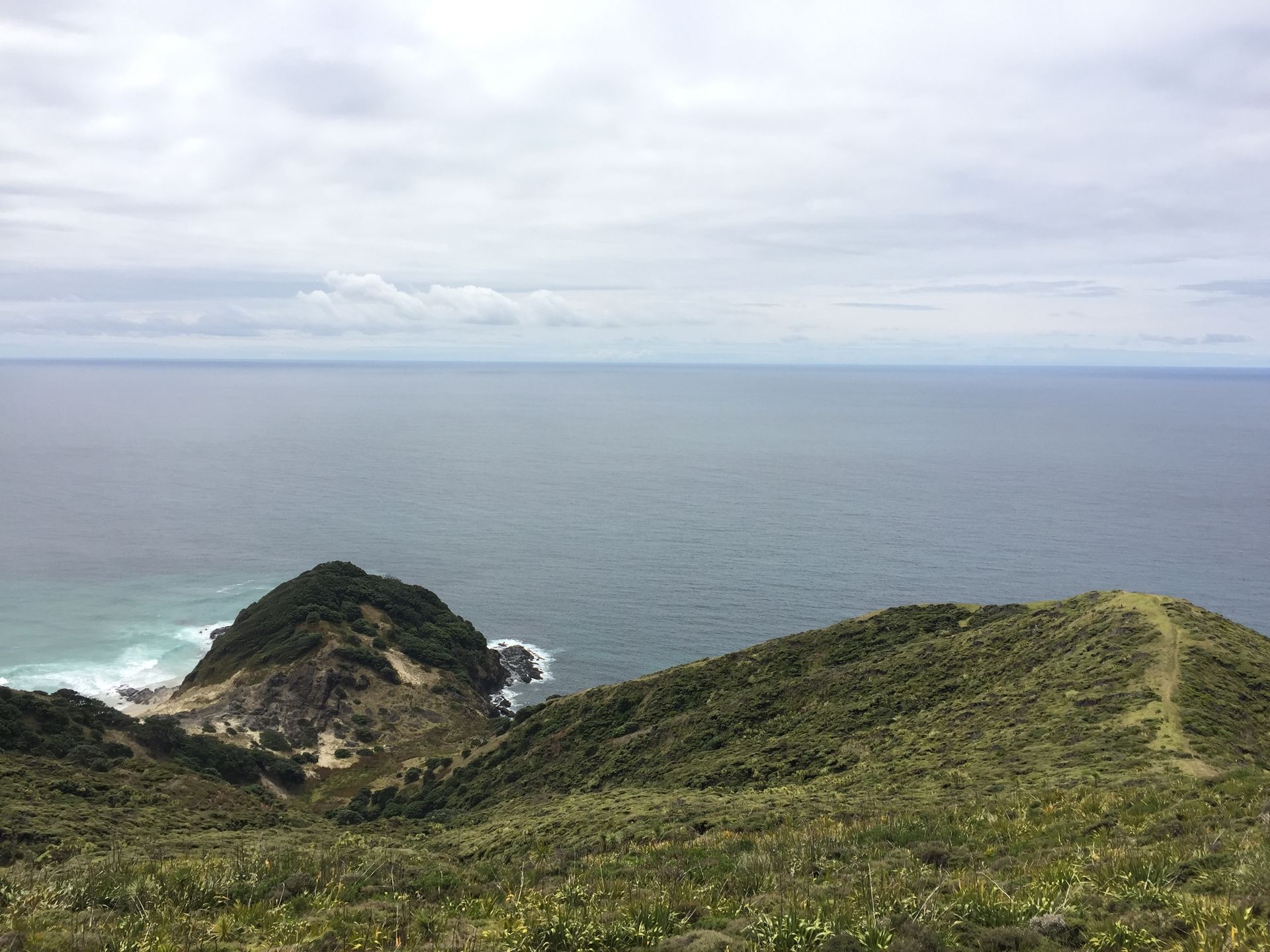
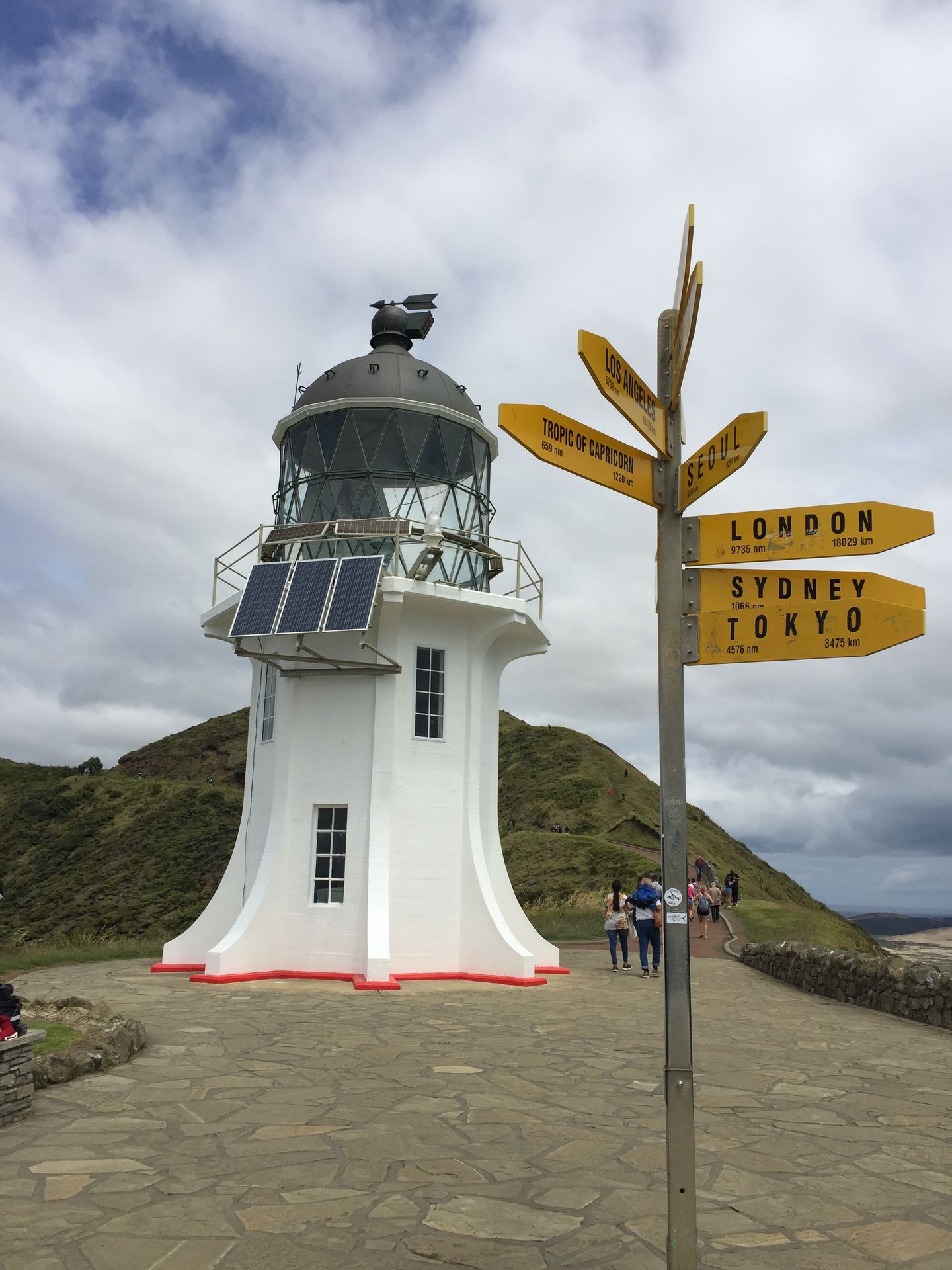
The 90 Mile Beach is well-known, the longest (four-wheel drive accessible) beach, although it's actually 'only' 88km long. Occasionally, you may also see sea lions here. We set off from Ahipara, but unfortunately, we didn't spot any sea lions there.
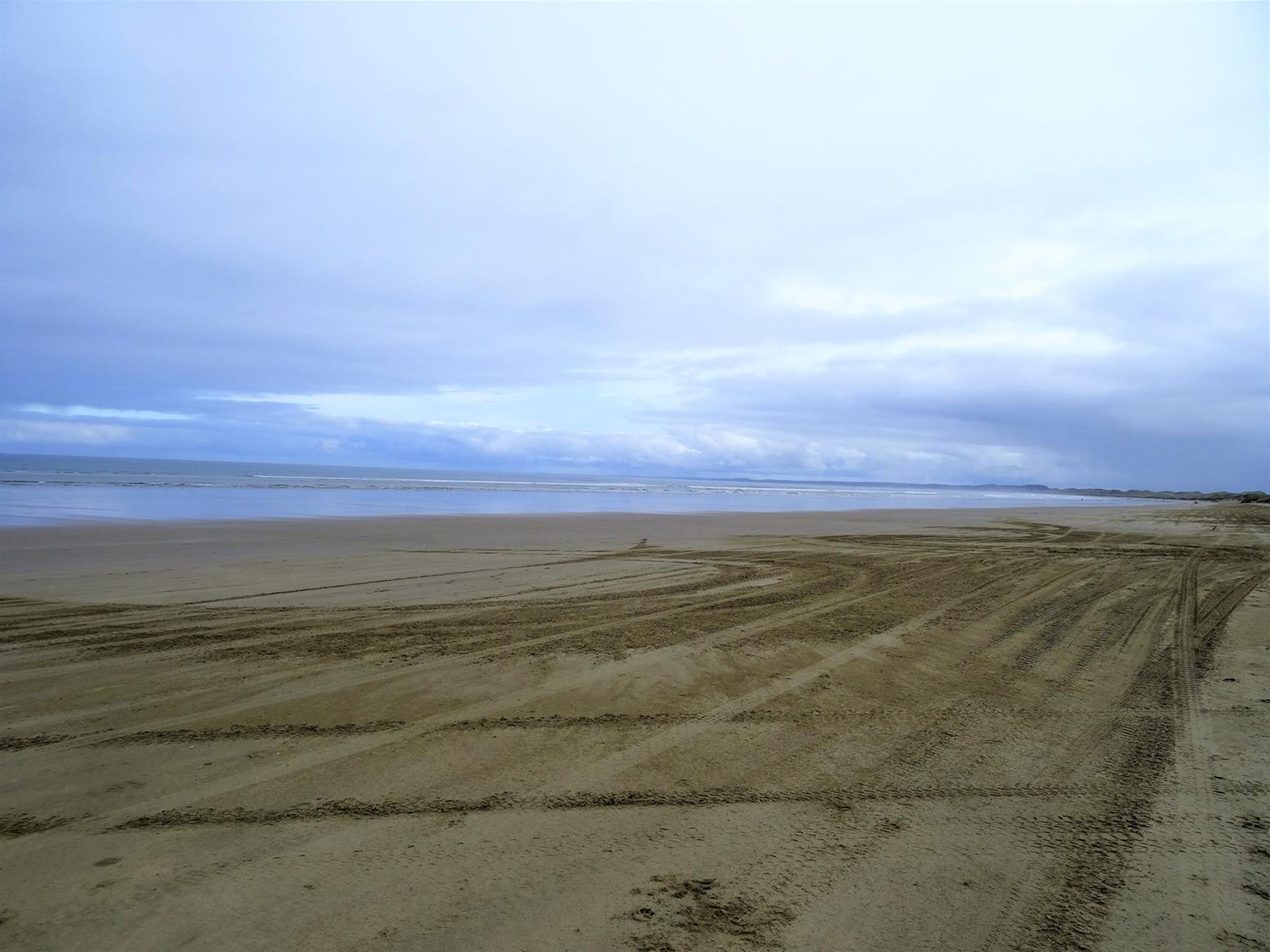
The route itself is already worth seeing. We went to the Waipoua Forest, where you can admire New Zealand's oldest and largest Kauri tree, which is about 2000 years old. The Māori call it Tāne Mahuta ('Lord of the Forest') and consider it a divine being born from the union of the heavens and the earth.
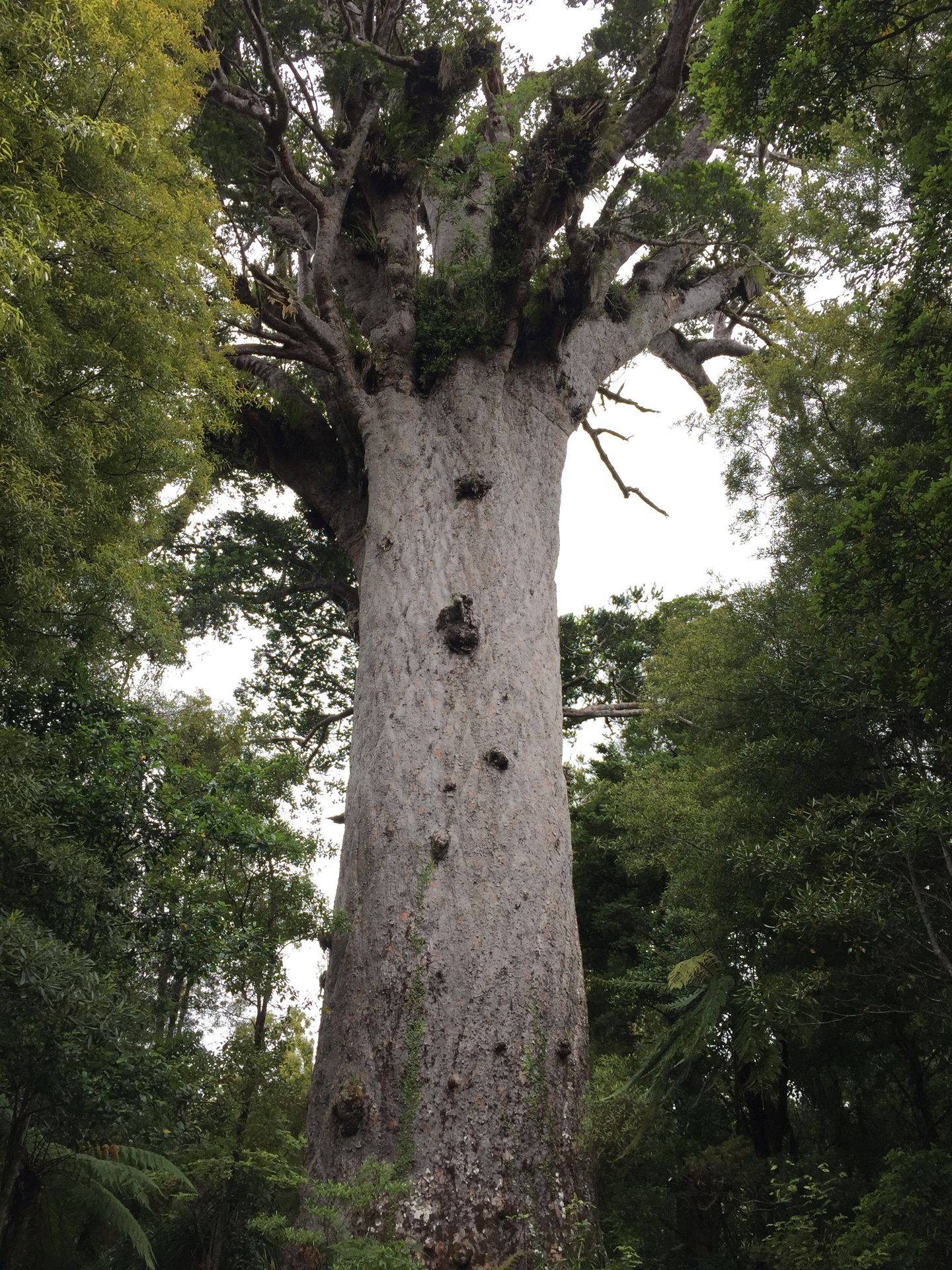
We were fortunate to join in at the right time, as several Māori were performing a very touching singing ceremony, initially intended for a tour group. However, since we were kindly invited by the Māori tour guide to join the crowd, we gladly accepted. Afterwards, we were told that it was about respect for nature and the deceased. According to Māori belief, there is no future possible without respect and protection for the earth. One can fully agree with that, even if it seems very late for many places. Especially in New Zealand, the experience has shown the devastating consequences on the ecological balance when foreign animal species like dogs, cats, but also unintentionally rats are introduced to the country. This led to the extinction of many flightless bird species, which had not developed any escape reflexes due to having no natural enemies before. The national bird, the Kiwi, is now being protected from extinction, but the marten-like possums, which were once introduced as 'fur suppliers,' have multiplied uncontrollably and are now referred to as a 'plague.'

In Mahakōhe, we visited the Kauri Museum, which impressed both of us. Peter was fascinated by the displayed technical equipment with which the Kauri bush pioneers felled countless thousands of years old Kauri trees, as their resilient wood was highly desired and well-paid. When most of these prehistoric giants had disappeared because of this, the so-called 'gumdiggers' dug for fossilized Kauri resin, which could also be sold for good money, just like amber.
Just in time before these wonderful ancient trees completely disappeared, further deforestation was legally stopped.
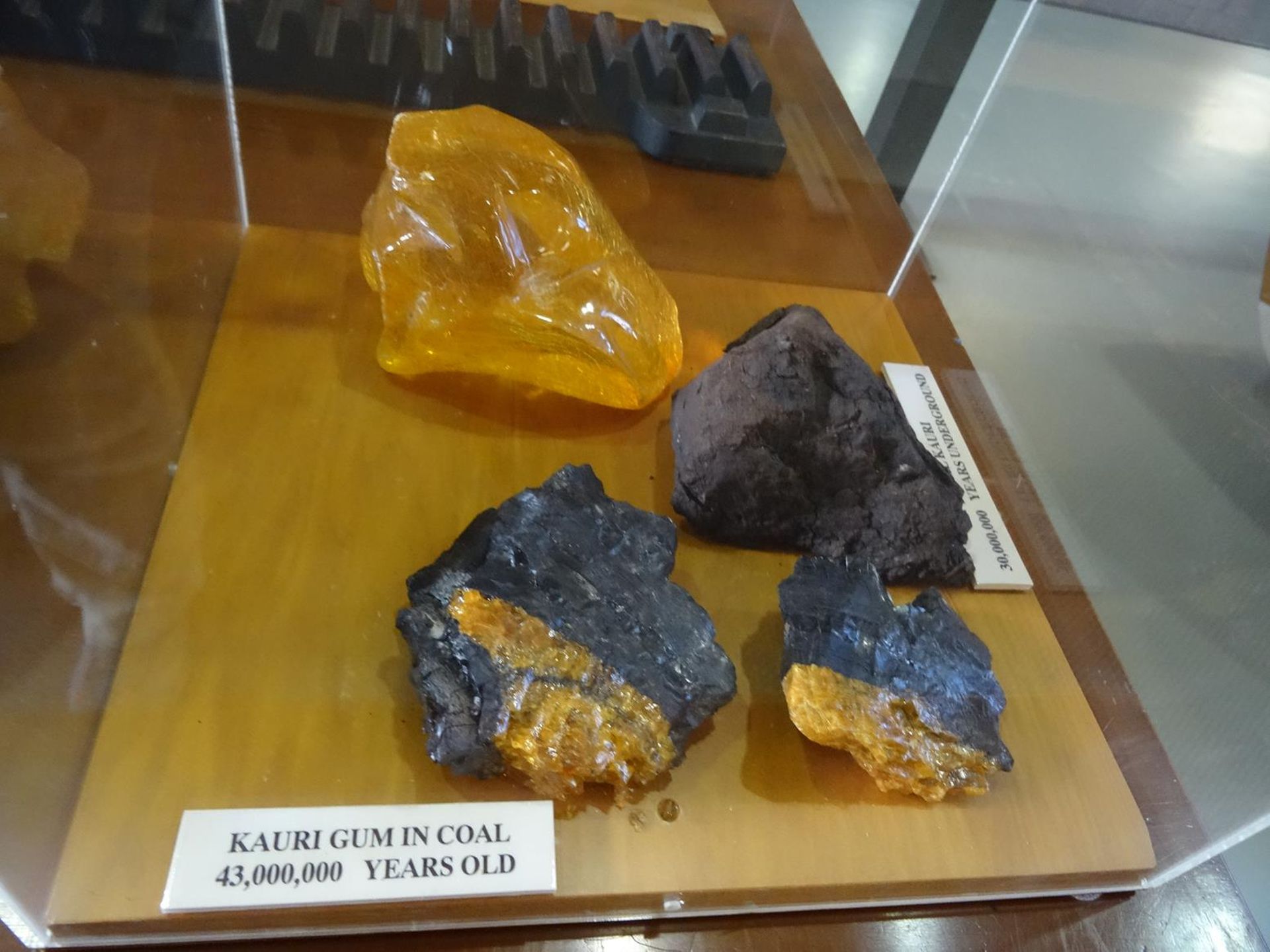
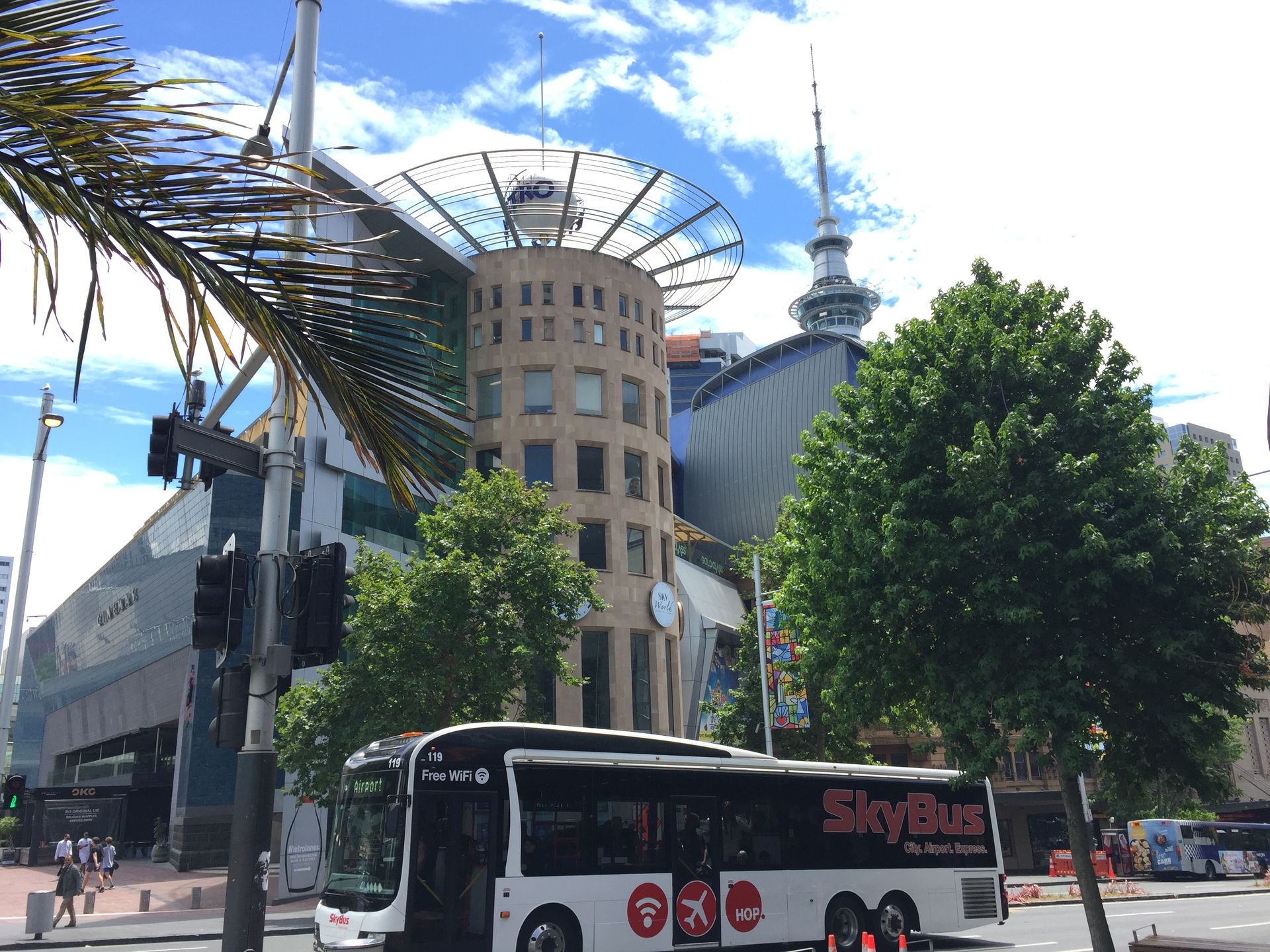
In Auckland, we went up the Sky Tower. The view from the 60th floor was overwhelming!
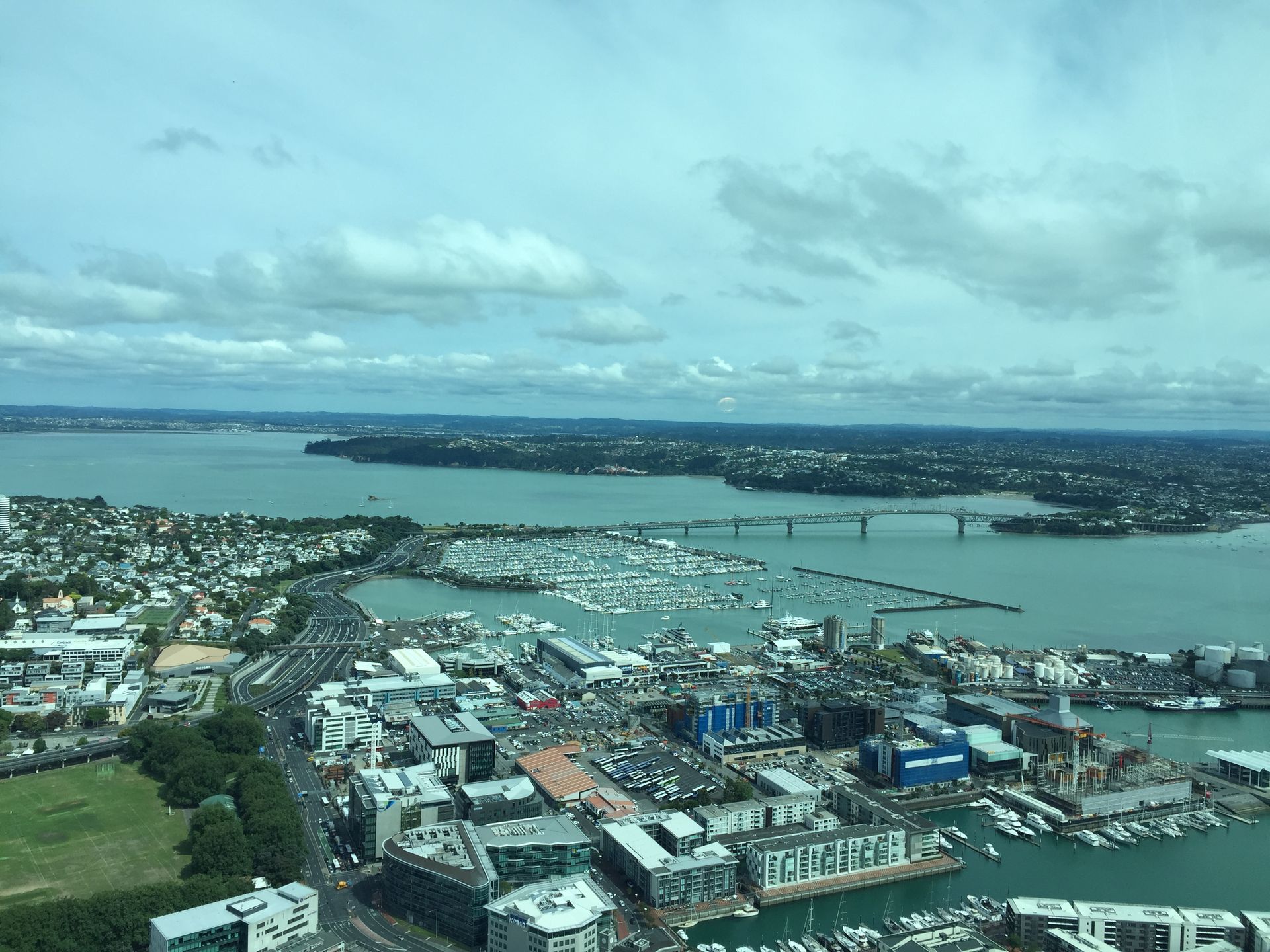
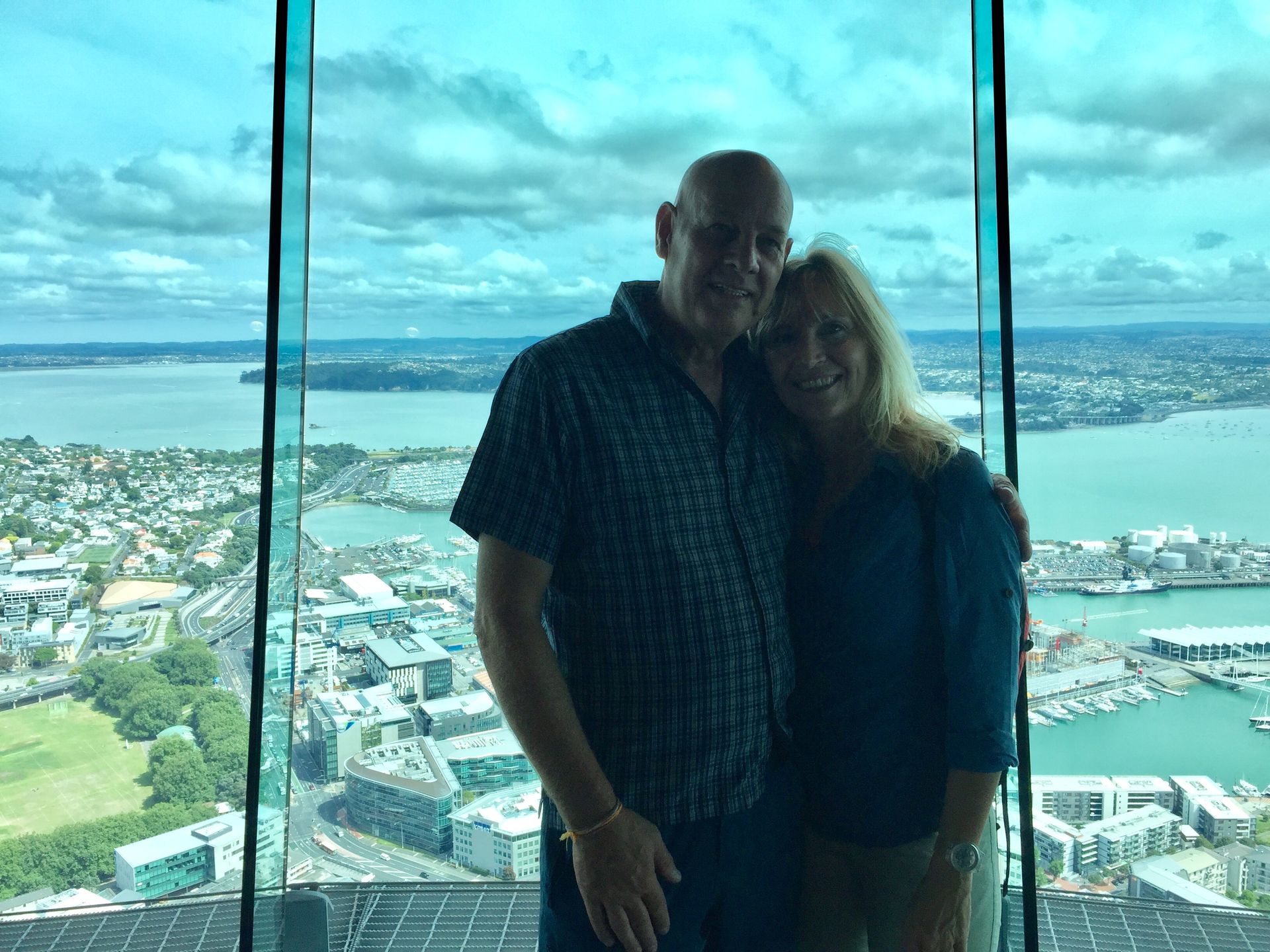
From above, you can also observe Skywalkers taking a spin around the outer ring of the tower.
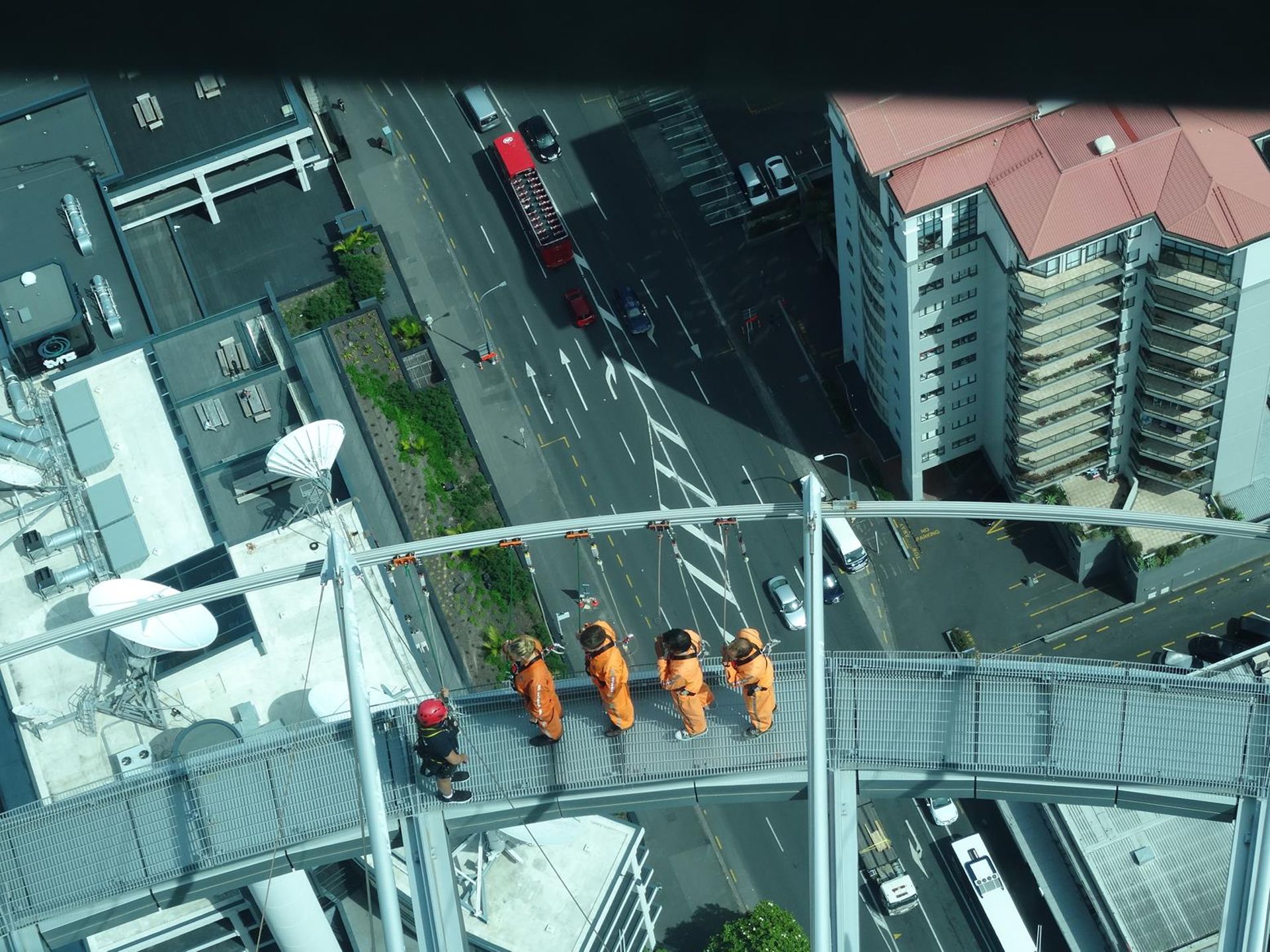
I watched a Māori performance at the War Memorial Museum, which I really enjoyed. Peter had seen something similar years ago. There was dancing and singing, and some explanations about Māori traditions. The grimacing may seem funny at first glance, but it was intended to intimidate the enemy, combined with gestures of physical superiority and strength. As you can see, it didn't work on me;).
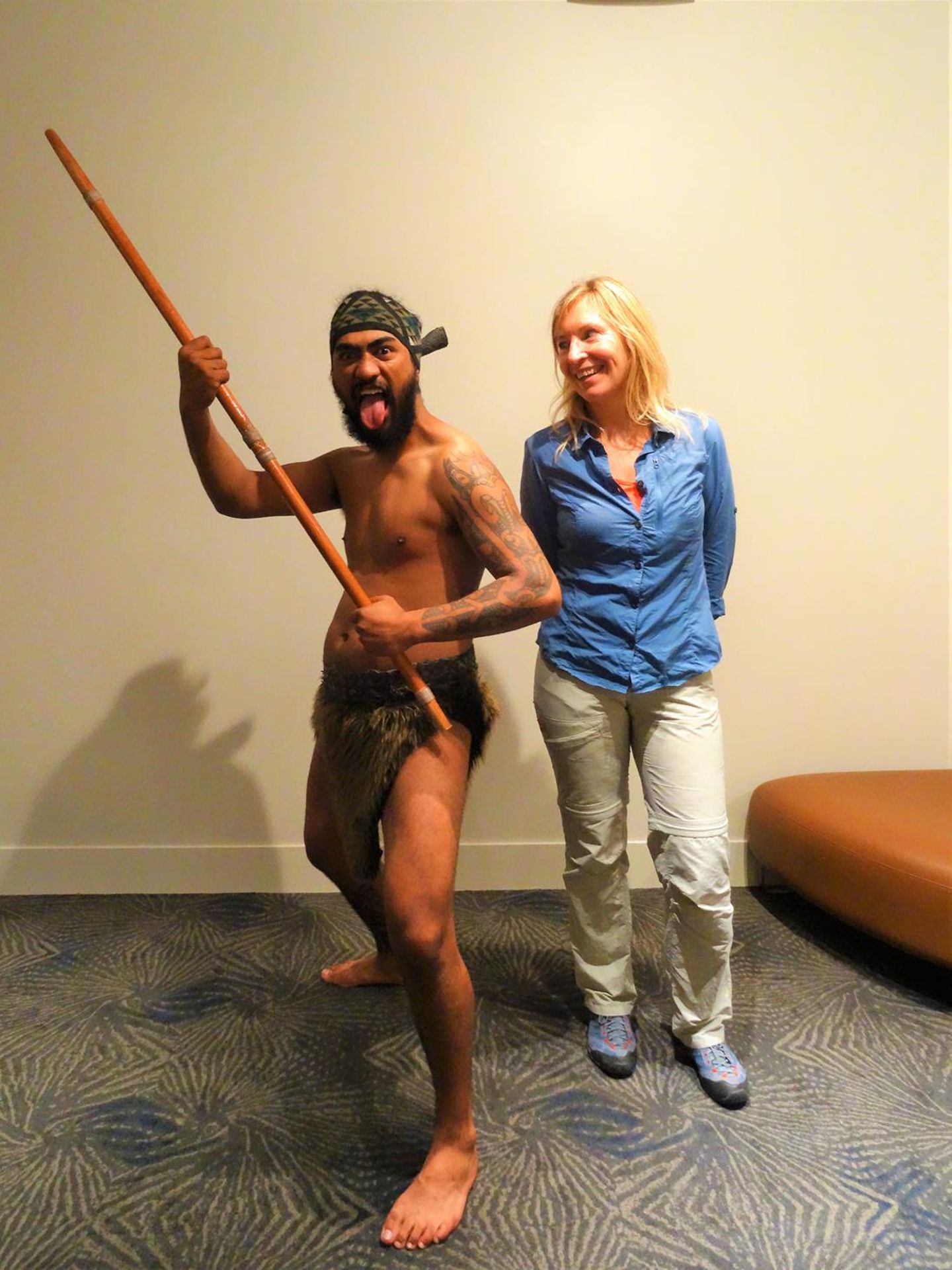
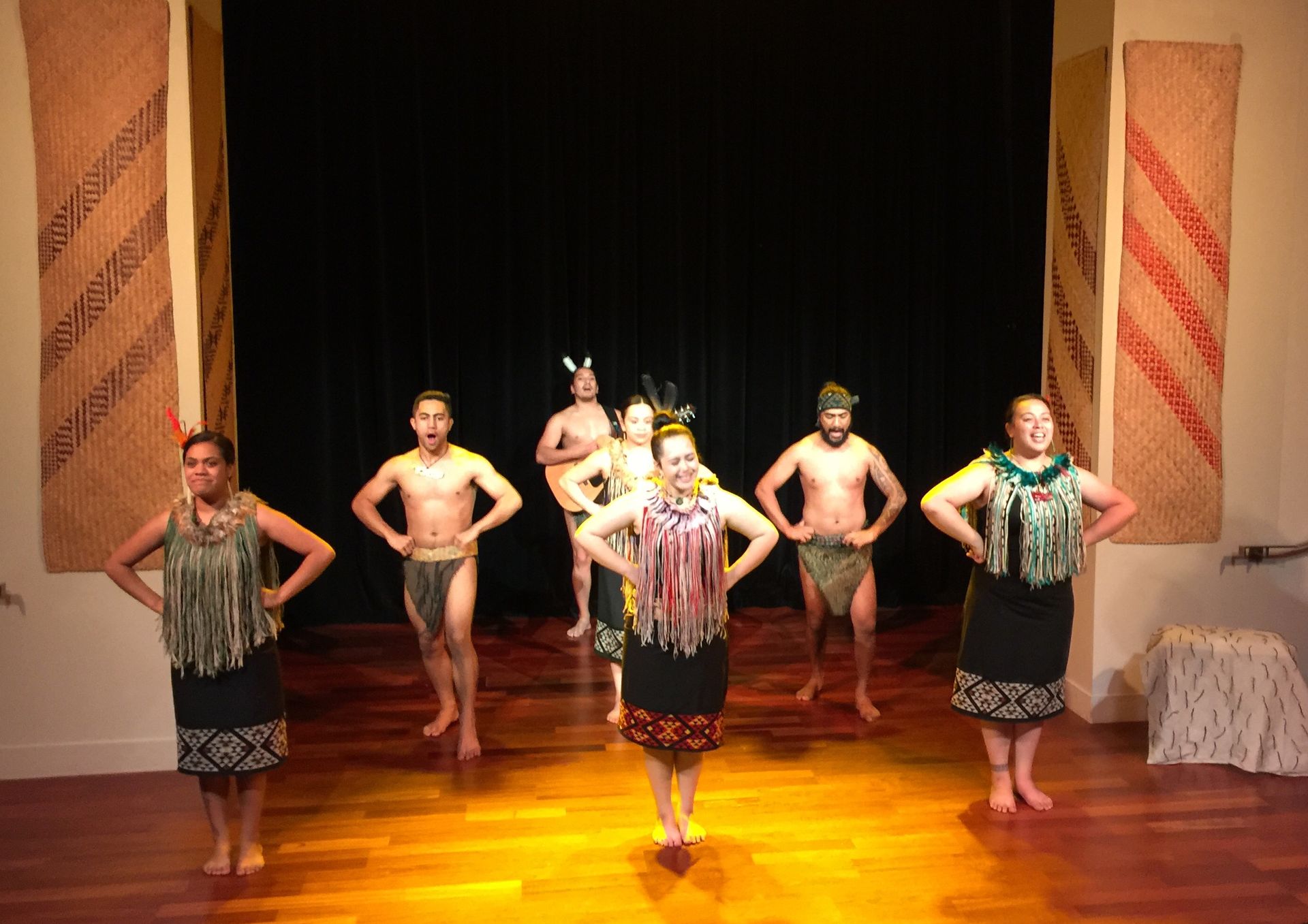
In the museum, there is also a very interesting exhibition about Māori culture. One of the exhibits is a meeting house where you can admire the impressive carving skills, as well as the artistically crafted war canoe.
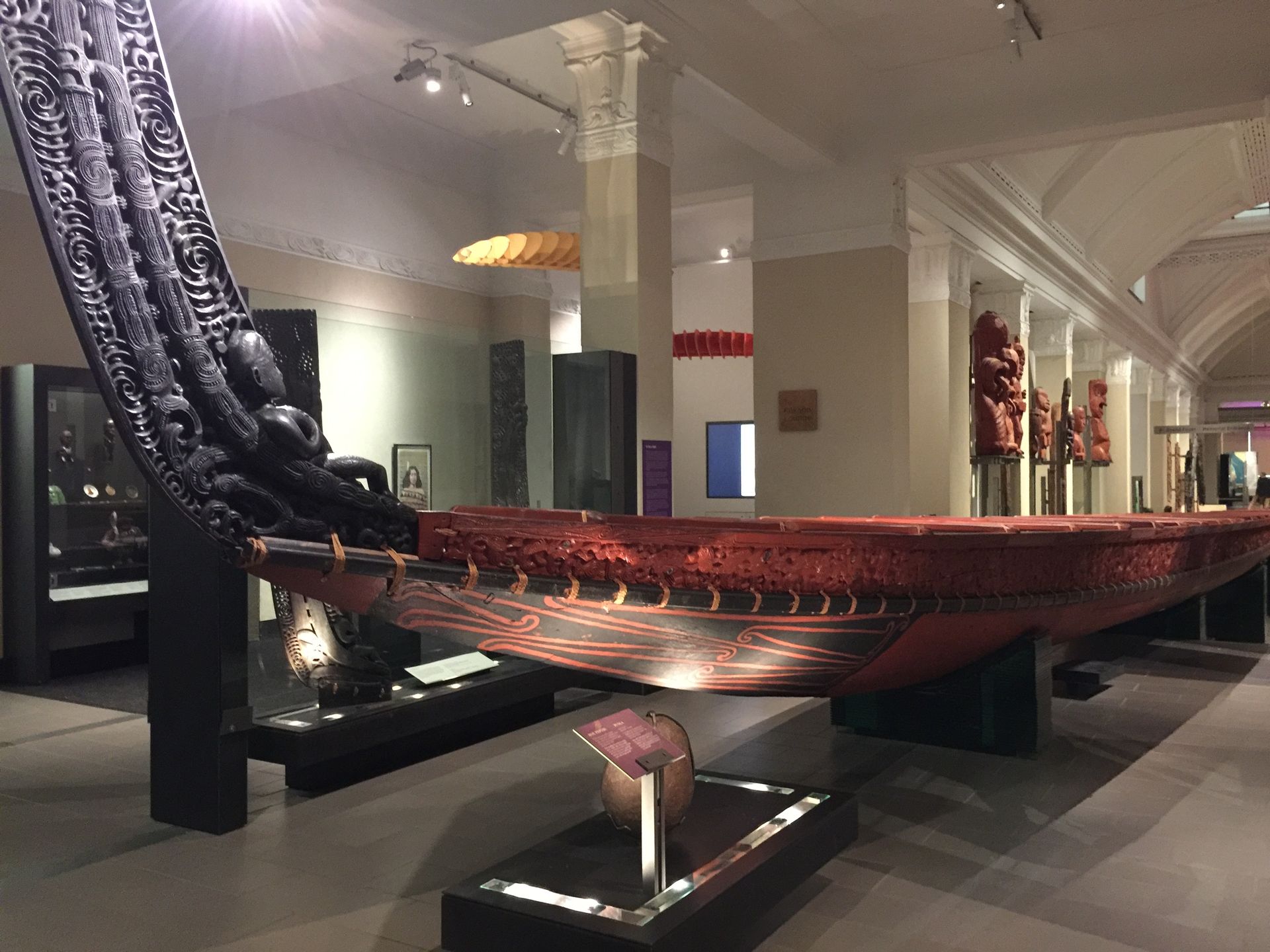

At the harbor, you can admire countless beautiful yachts and boats. Both adults and even children often gaze in fascination and dreaminess;).
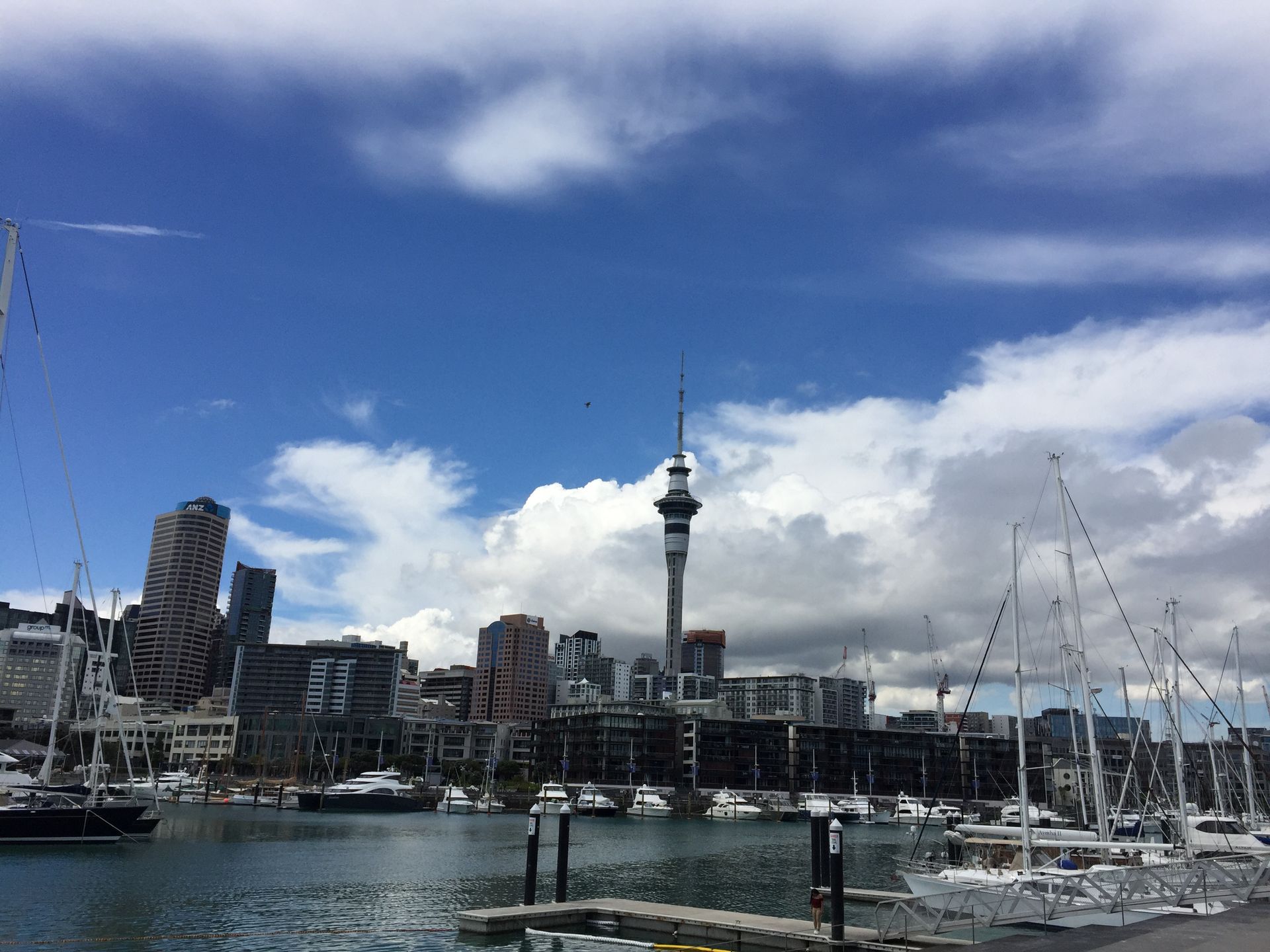
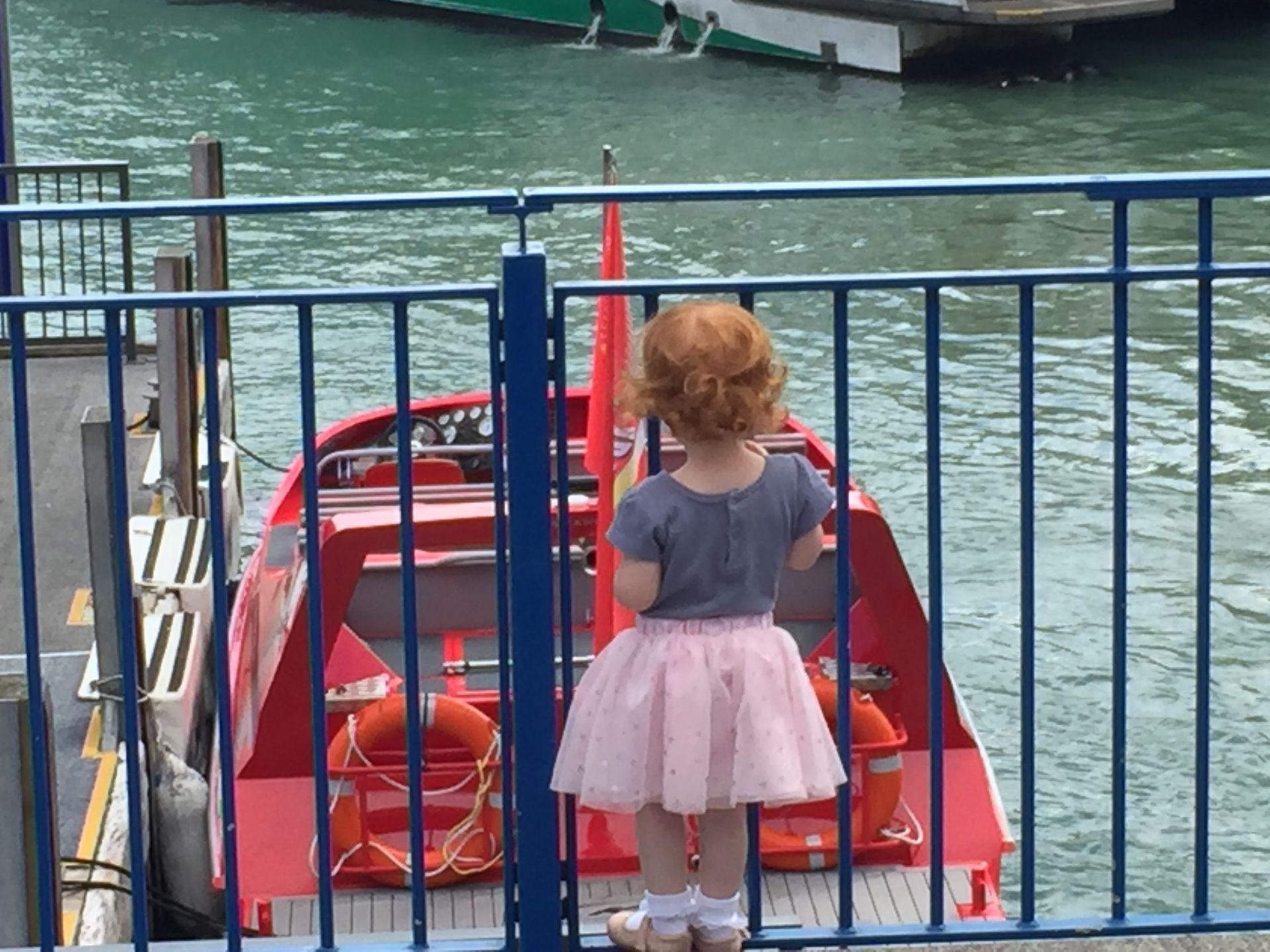
After four weeks of traveling New Zealand in a campervan, this section also comes to an end. After traveling in Australia as well, we enjoyed having a 'mobile home' for eleven weeks. We both really liked this way of traveling. The freedom to comfortably reach areas that are not typically touristy, without having to constantly pack and unpack a backpack, had something very appealing to us! It was also interesting how quickly we felt really at home in our campervan. It was surprising for me how easily I adapted to this lifestyle and definitely very exciting. Tomorrow we will fly to the Cook Islands, to Rarotonga.
At the end of our trip, we look forward to two weeks in the South Pacific. There, we will soak up a bit more sun and warmth before returning to Vienna afterwards.
But it's not time yet...
समाचार पत्रिका के लिए सदस्यता लें
उत्तर (3)
Martina
Wie schnell die Zeit vergangen ist!! :-o. Wünschen euch noch zwei wunderschöne Wochen im Südpazifik und freuen uns schon sehr auf's Wiedersehen! <3Marion
Wir freuen uns auch schon sehr, euch wieder zu sehen!🤗😘Robert
Hallo Ihr beiden! Ich habe Eure Kommentare und Bilder leider viel zu wenig verfolgt. Ich beneide Euch für Eure Erlebnisse. Neuseeland interessiert mich auch sehr. Hoffe Ihr seid wohlbehalten zu Weihnachten wieder zurück! Alles Liebe, Robert
यात्रा रिपोर्ट न्यूज़ीलैंड
